Living & Non-living Things
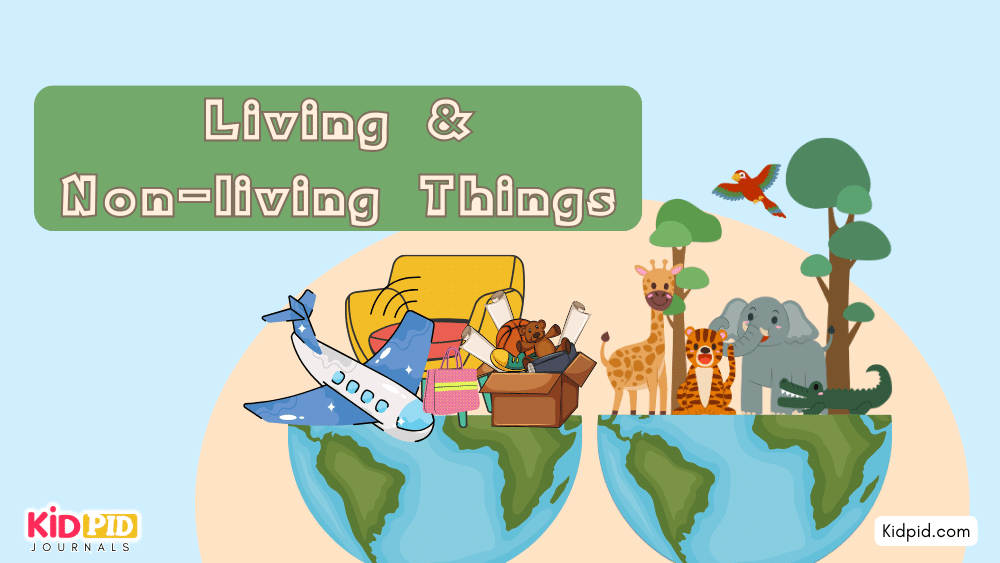
Living and non-living things are fundamental concepts in biology that help us understand the world around us. Living things, also known as organisms, are entities that possess certain attributes and processes associated with life like reproduction, growth, development, etc. You can download this book (PDF) with the link given in the end of the lesson.
Join our Telegram channel for free books, journals, quizzes, and printable worksheets.
Contents
Living & Non-living Things – Characteristics & Activities
Read More: States of Matter Science Worksheets for Kids
[Scroll Down for Download Link]
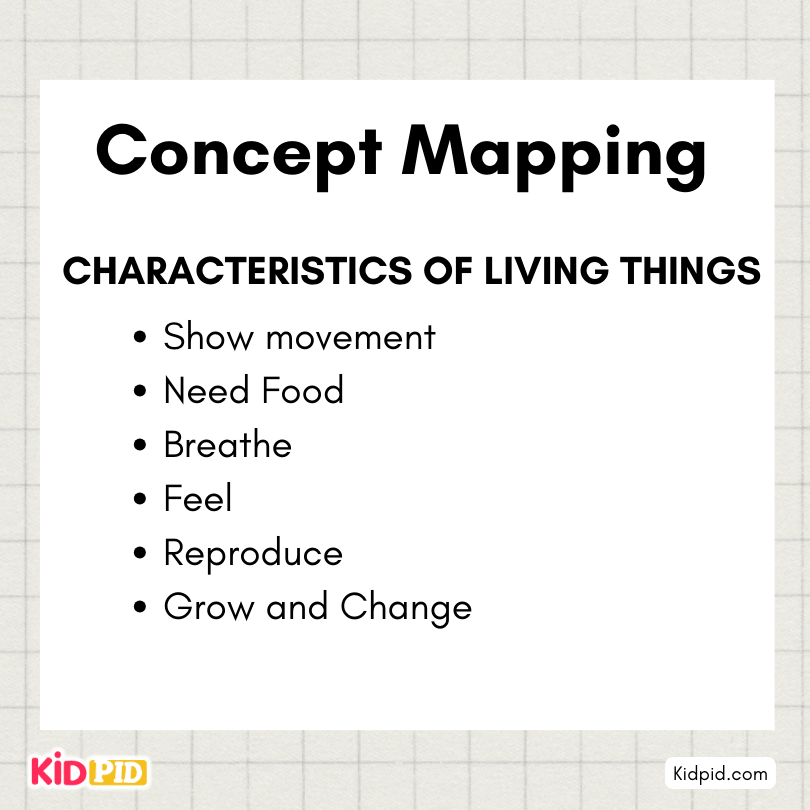
- INTRODUCTION
- Living and non-living things
- CHARACTERISTICS OF LIVING THINGS
- Show movement
- Need Food
- Breathe
- Feel
- Reproduce
- Grow and Change
INTRODUCTION
Living and Non-living Things
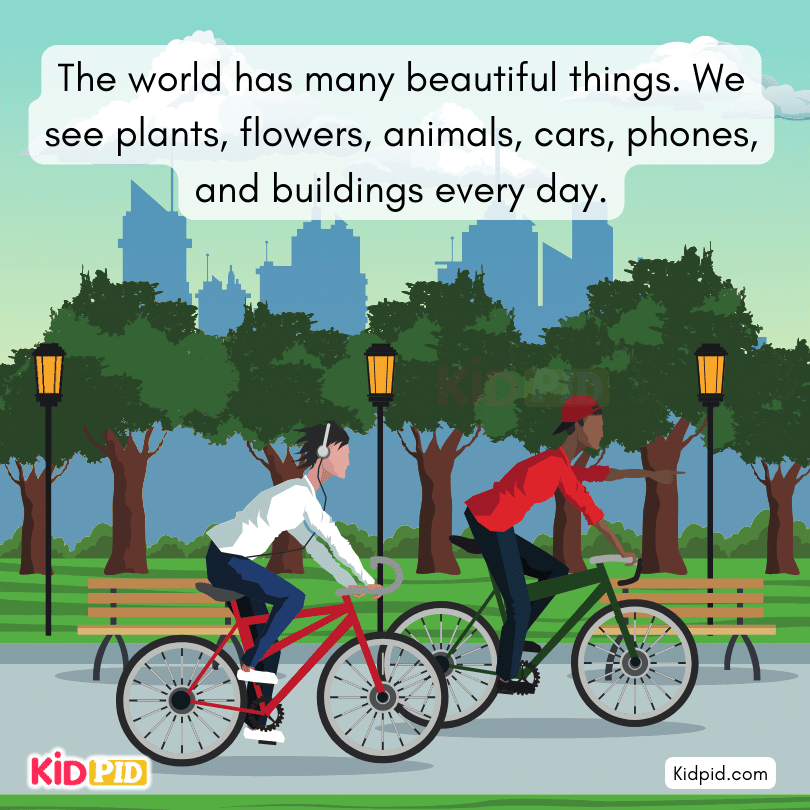
The world has many beautiful things. We see plants, flowers, animals, cars, phones, and buildings every day.
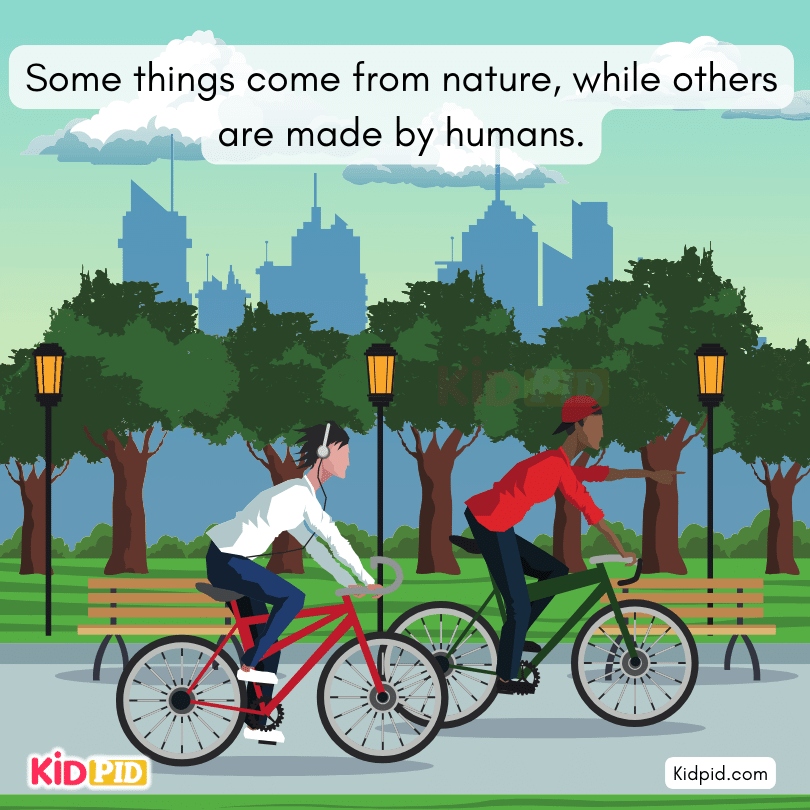
Some things come from nature, while others are made by humans.
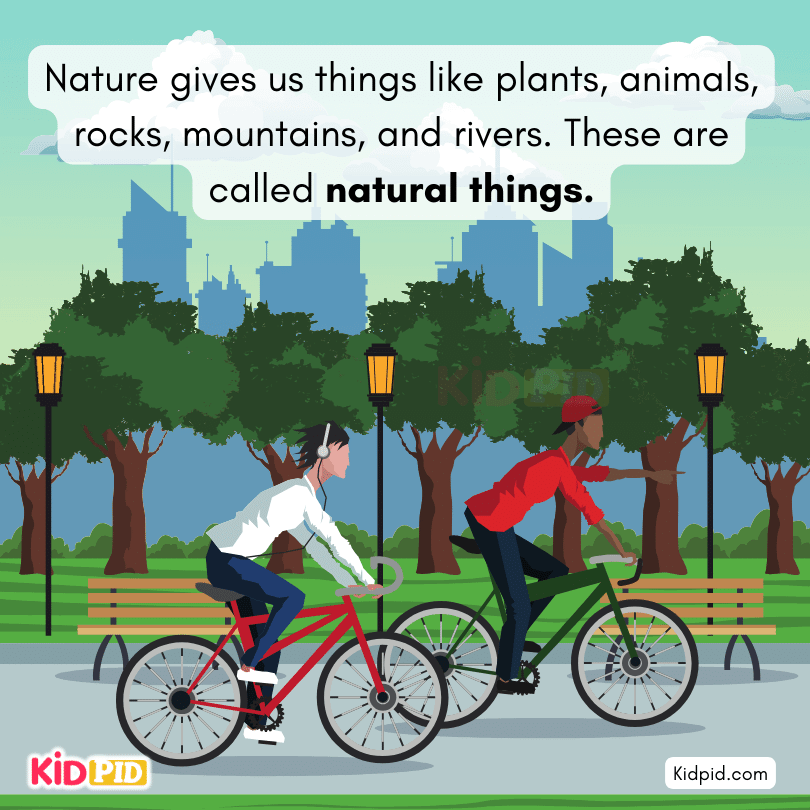
Nature gives us things like plants, animals, rocks, mountains, and rivers. These are called natural things.
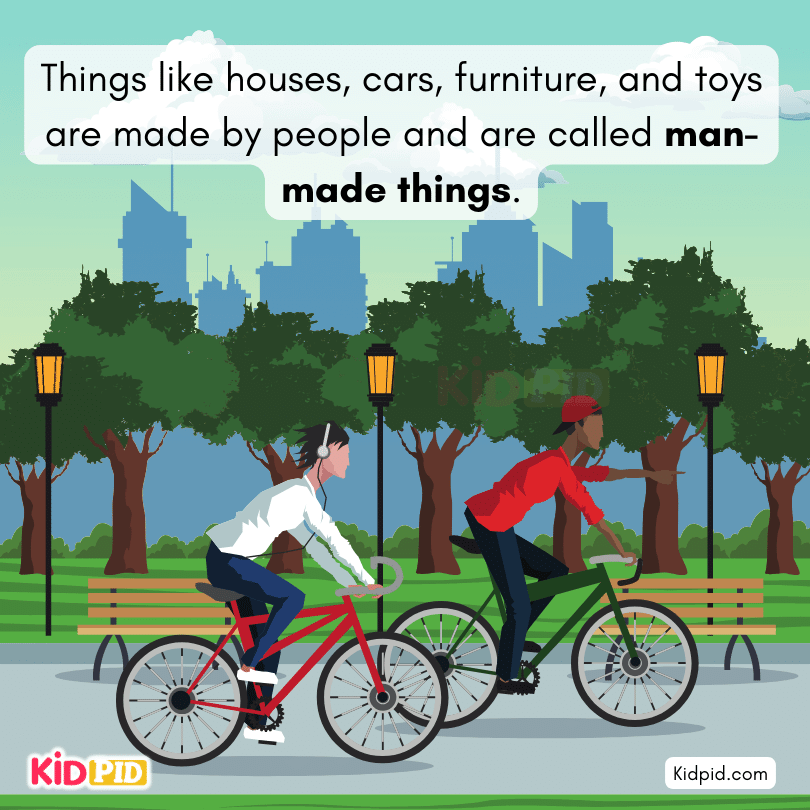
Things like houses, cars, furniture, and toys are made by people and are called man-made things.
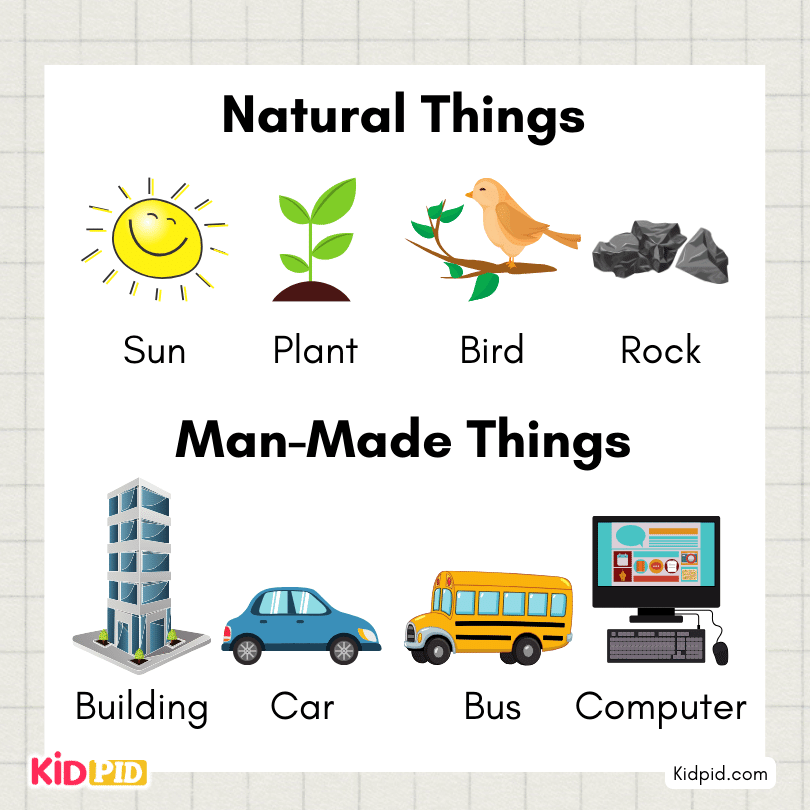
Example: Natural Thing – Sun, Plant, Bird, rock.
Man Made Thing – Building, Car, Bus, Computer.
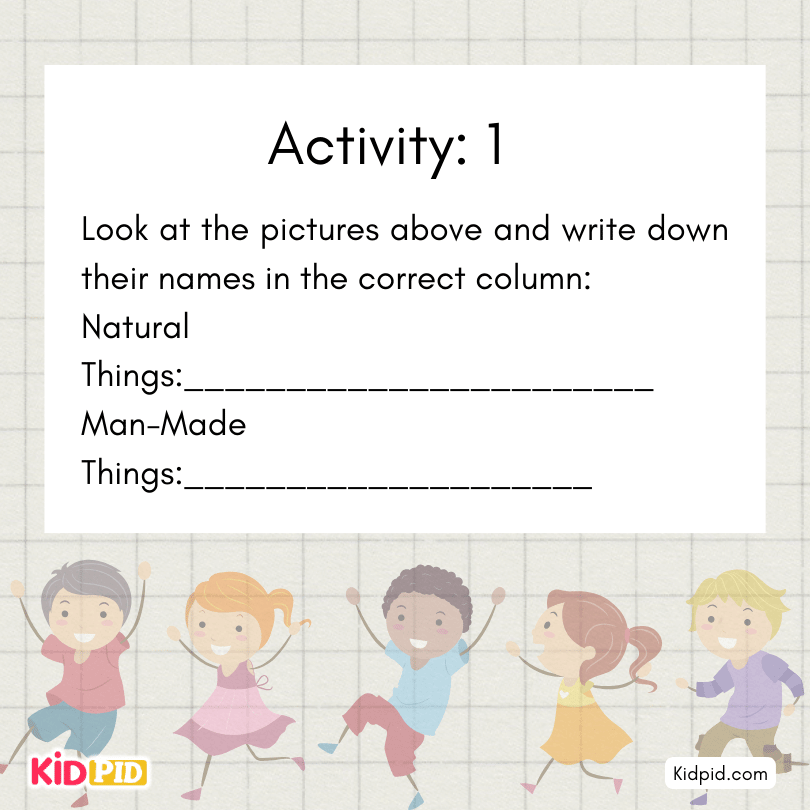
Activity-1
|
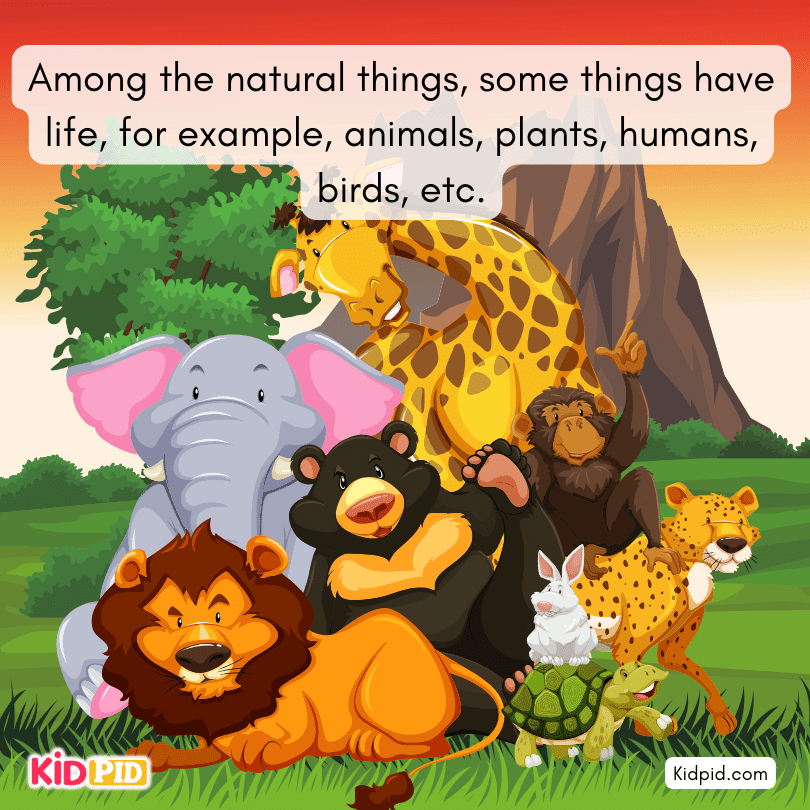
Among the natural things, some things have life, for example, animals, plants, humans, birds, etc.
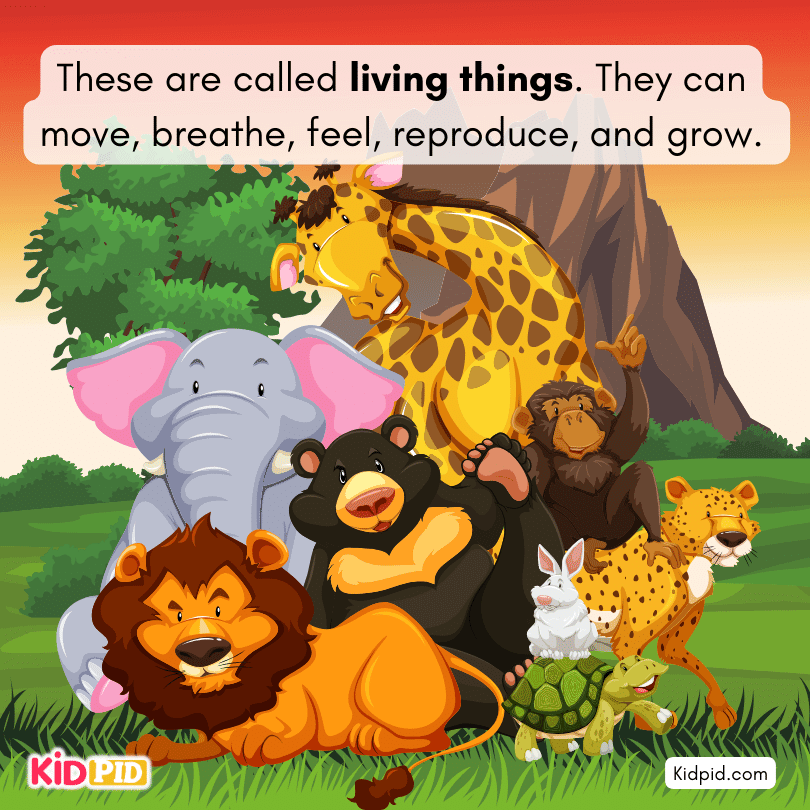
These are called living things. They can move, breathe, feel, reproduce, and grow.
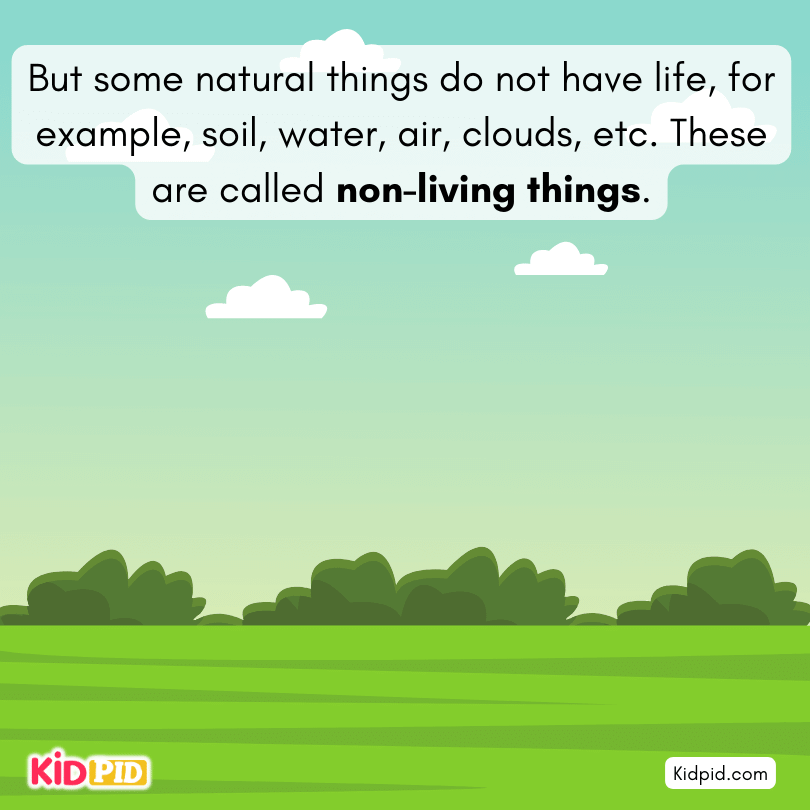
But some natural things do not have life, for example, soil, water, air, clouds, etc. These are called non-living things.
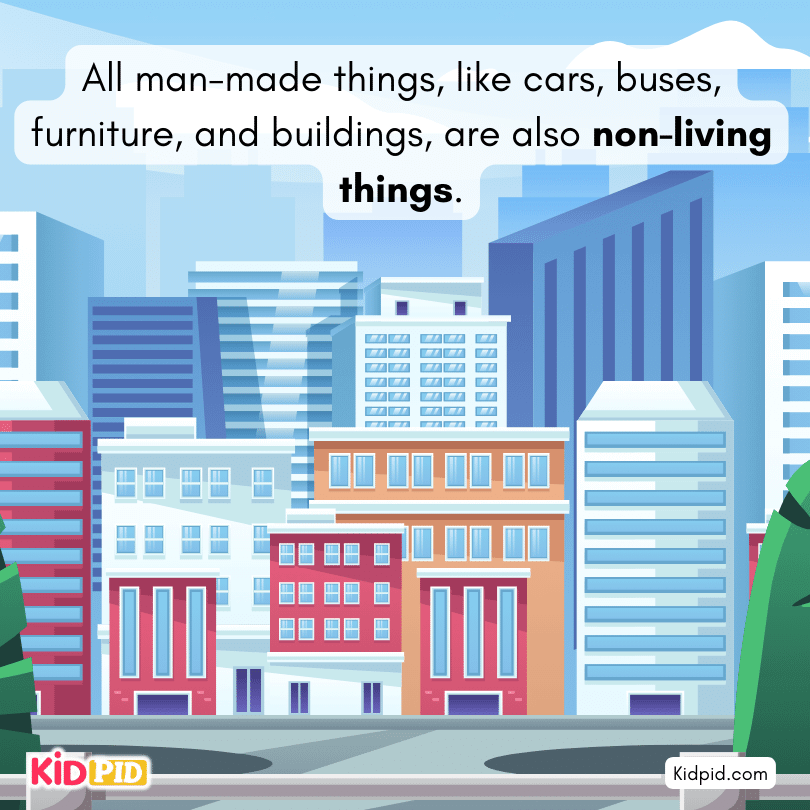
All man-made things, like cars, buses, furniture, and buildings, are also non-living things.
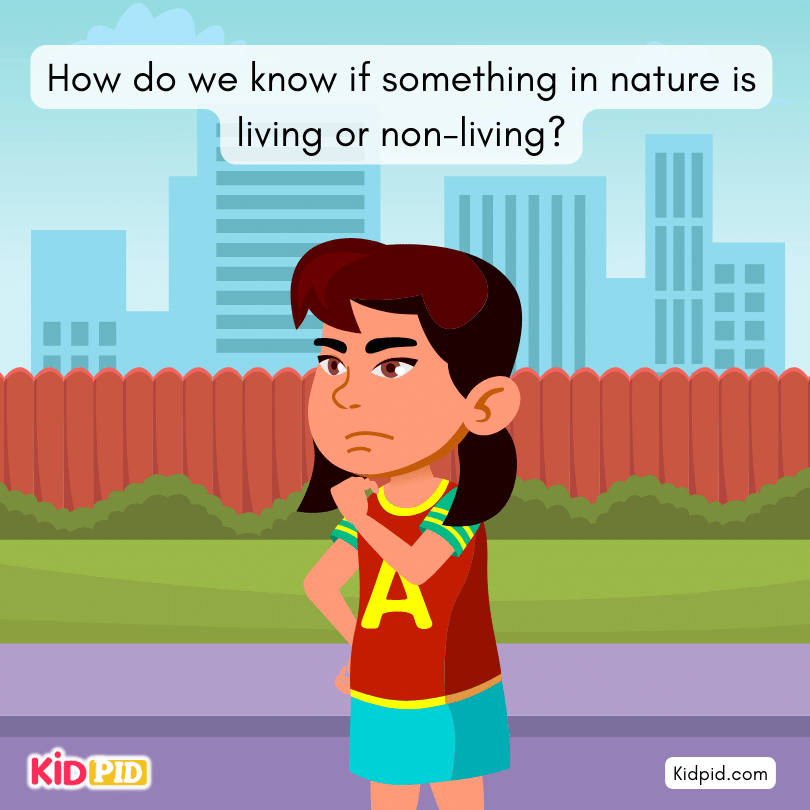
How do we know if something in nature is living or non-living?
Living Things:
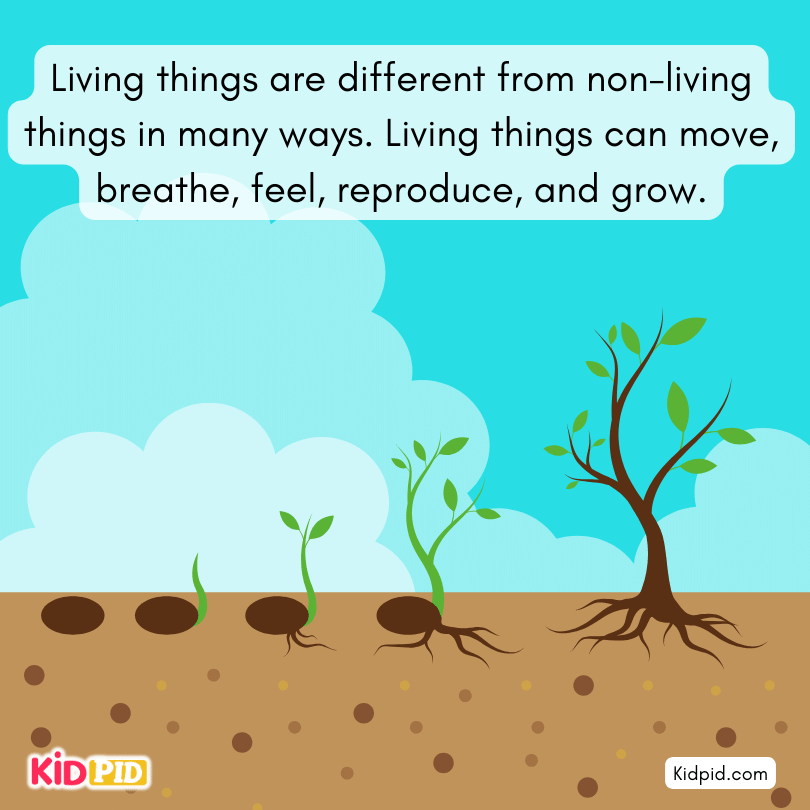
Living things are different from non-living things in many ways. Living things can move, breathe, feel, reproduce, and grow.
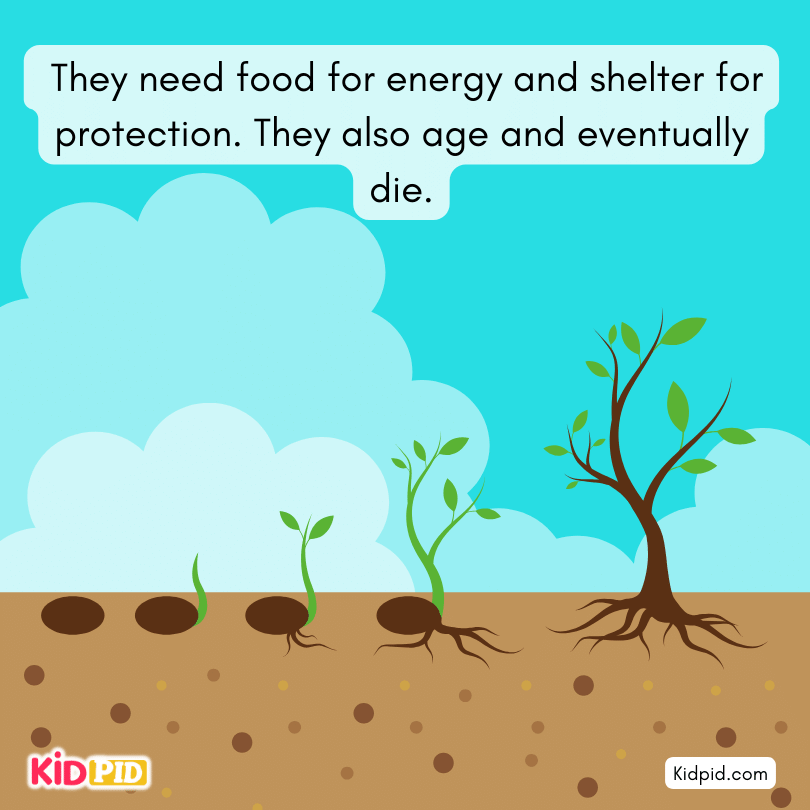
They need food for energy and shelter for protection. They also age and eventually die.
Non-living Things:
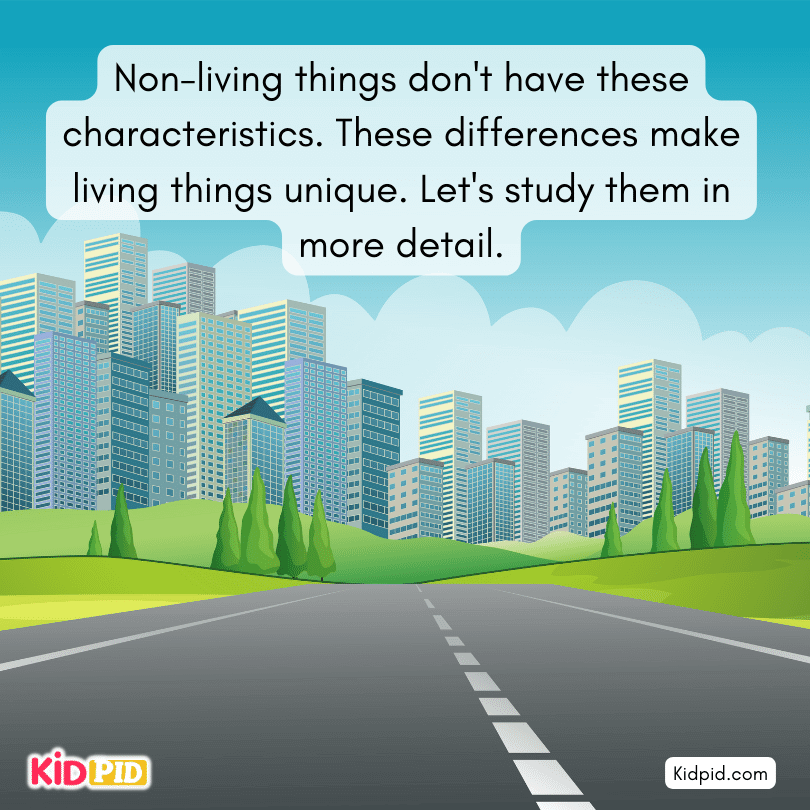
Non-living things don’t have these characteristics. These differences make living things unique. Let’s study them in more detail.
Characteristics Of Living Things
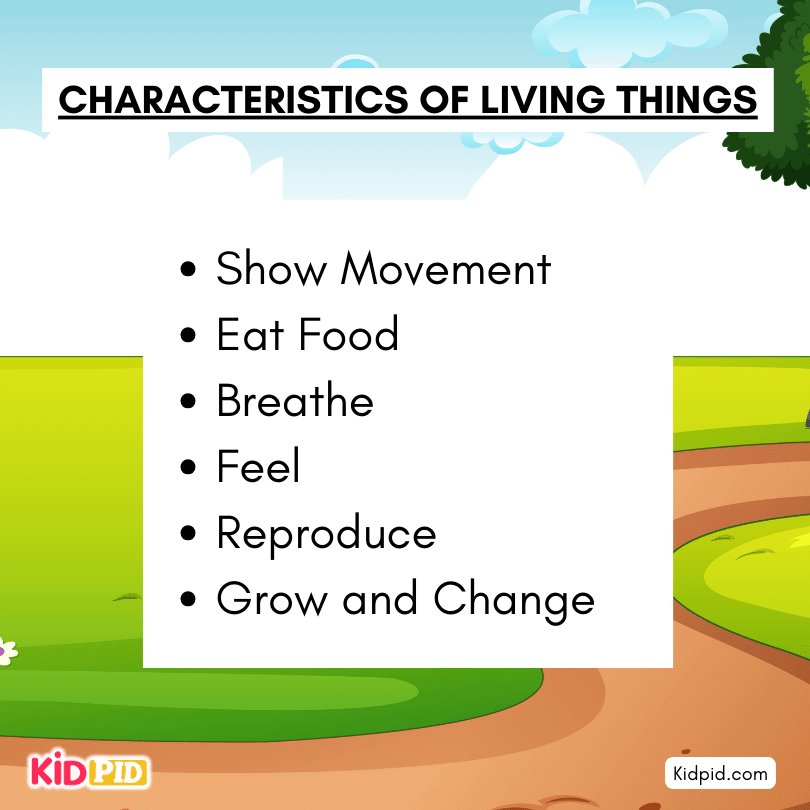
- Show movement
- Eat food
- Breathe
- Feel
- Reproduce
- Grow and change
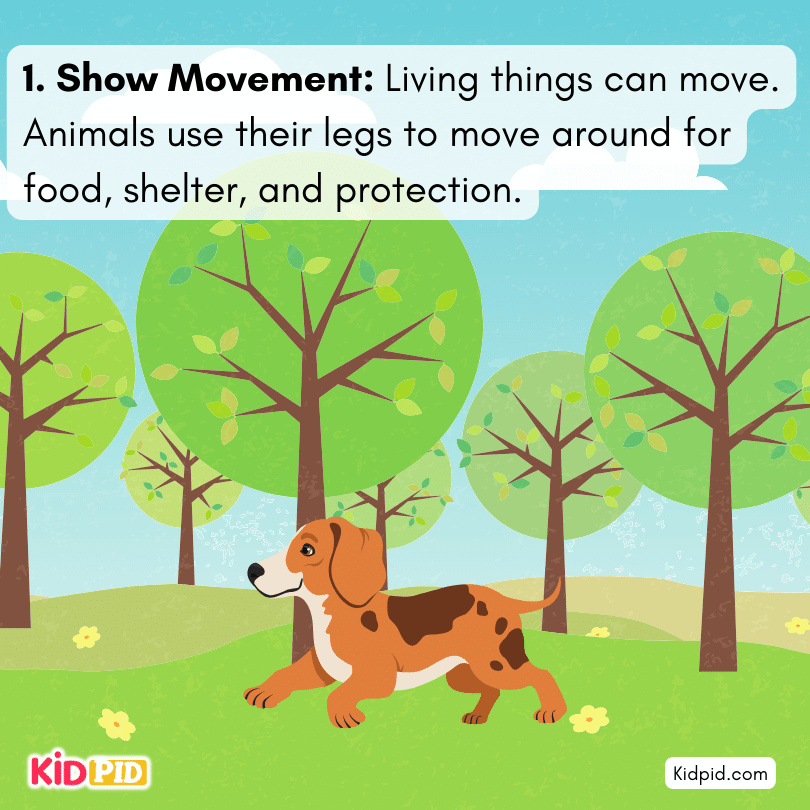
Living things can move. Animals use their legs to move around for food, shelter, and protection.
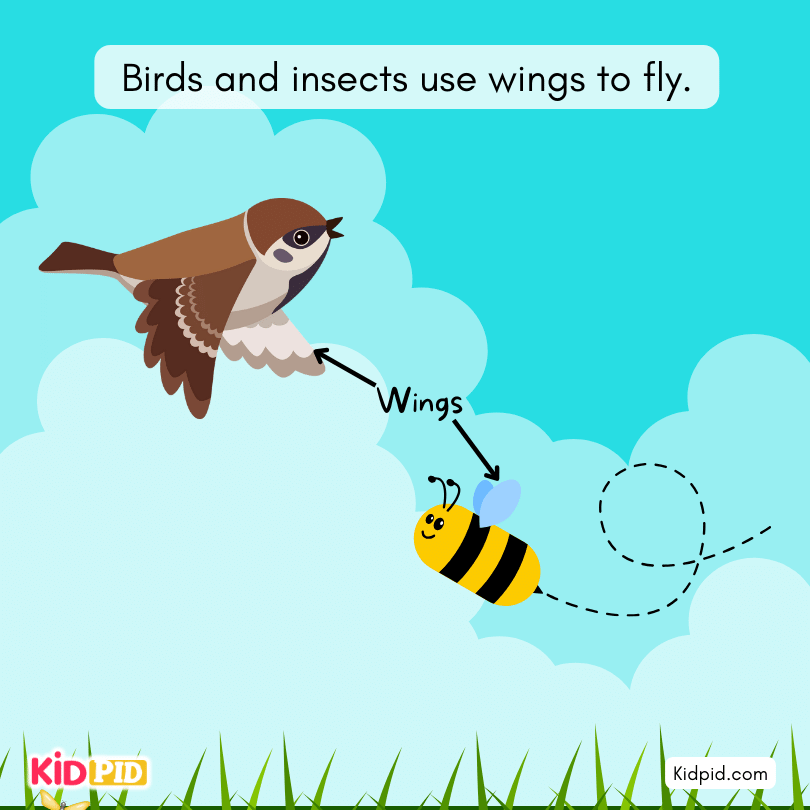
Birds and insects use wings to fly.
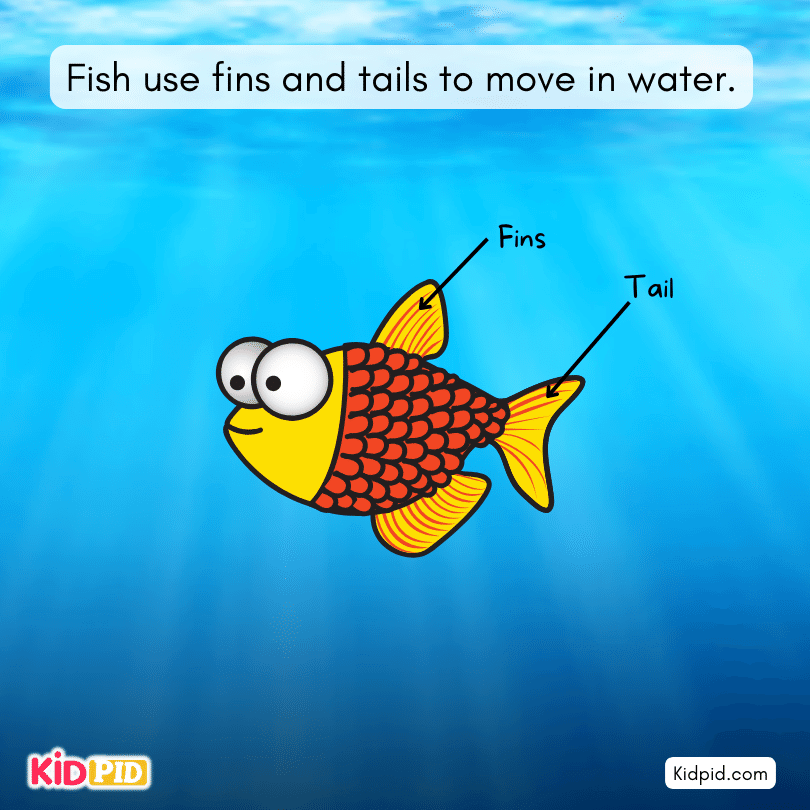
Fish use fins and tails to move in water.
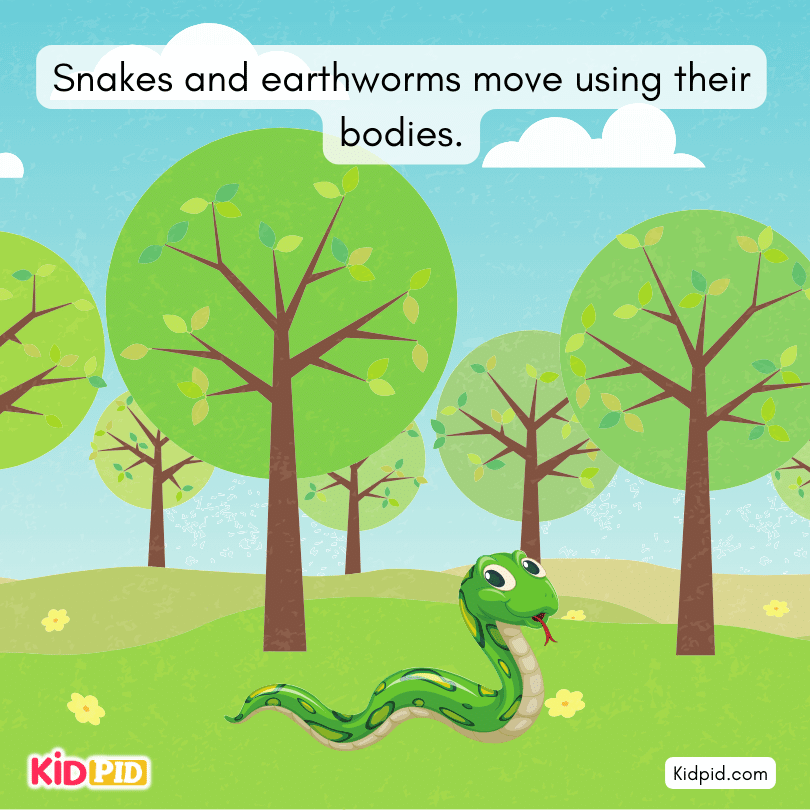
Snakes and earthworms move using their bodies.
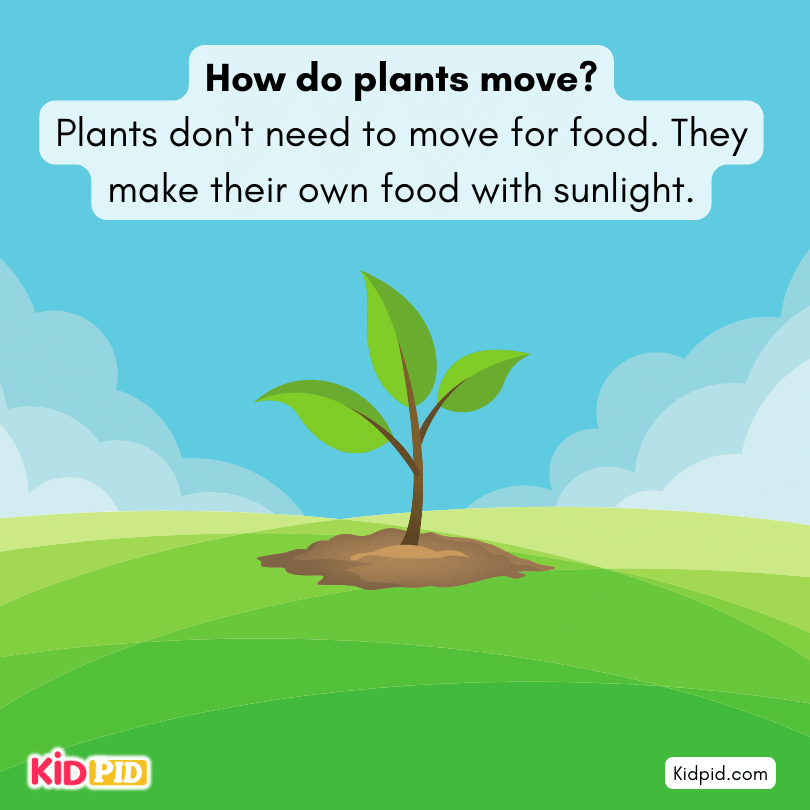
Plants don’t need to move for food. They make their food with sunlight.
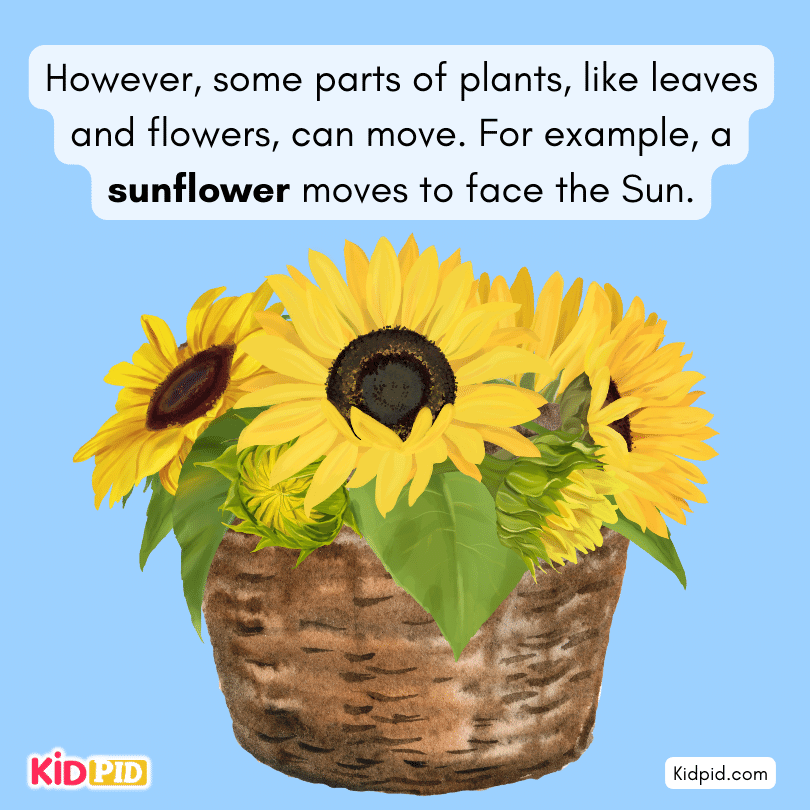
However, some parts of plants, like leaves and flowers, can move. For example, a sunflower moves to face the Sun.
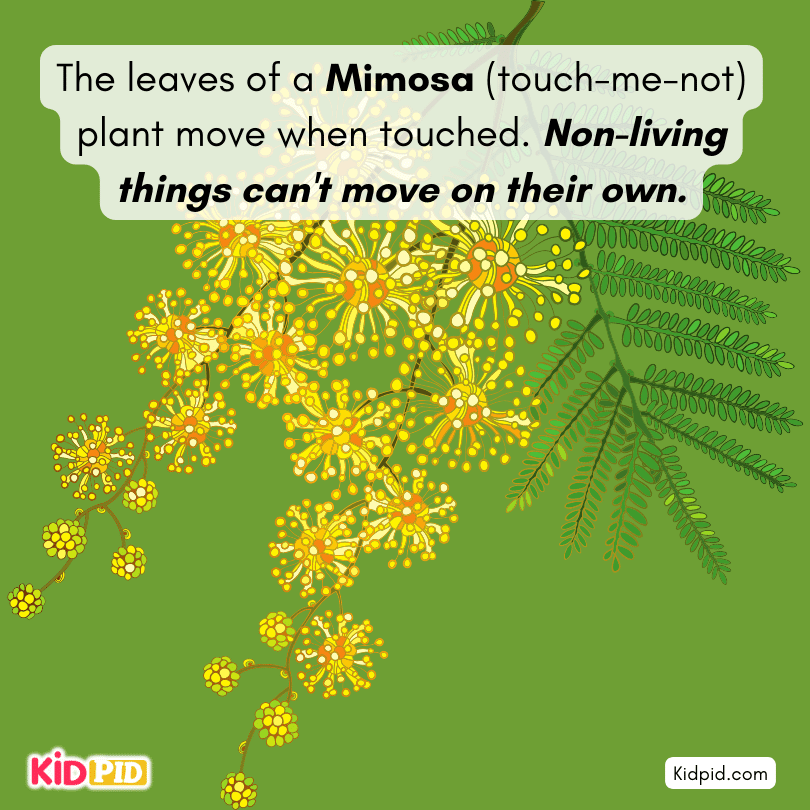
The leaves of a Mimosa (touch-me-not) plant move when touched. Non-living things can’t move on their own.
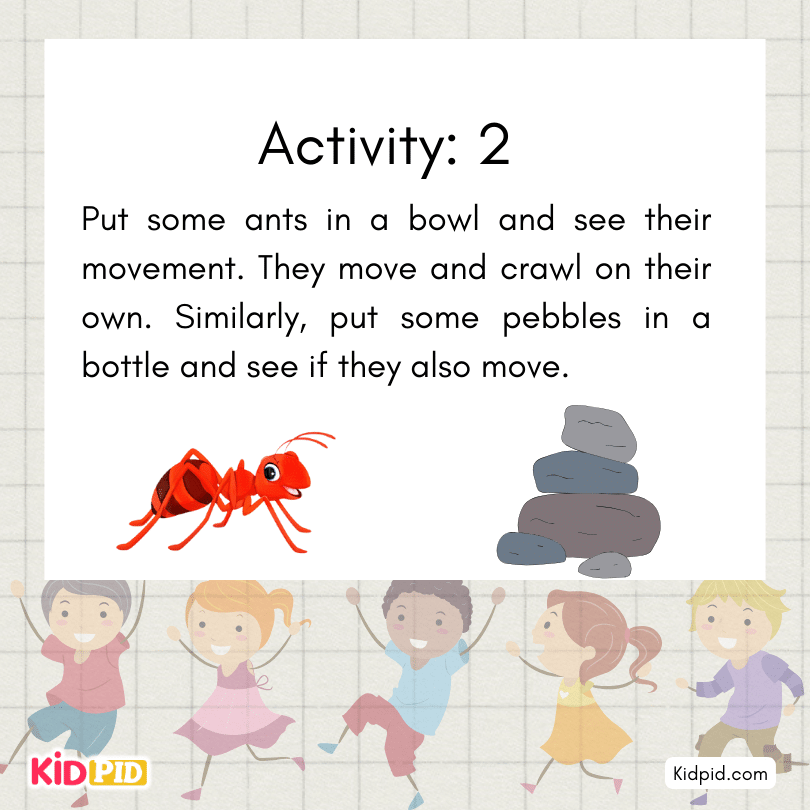
Activity-2
|
Living things need food and water to survive and do their daily activities. Food gives them energy to grow, work, and stay healthy.
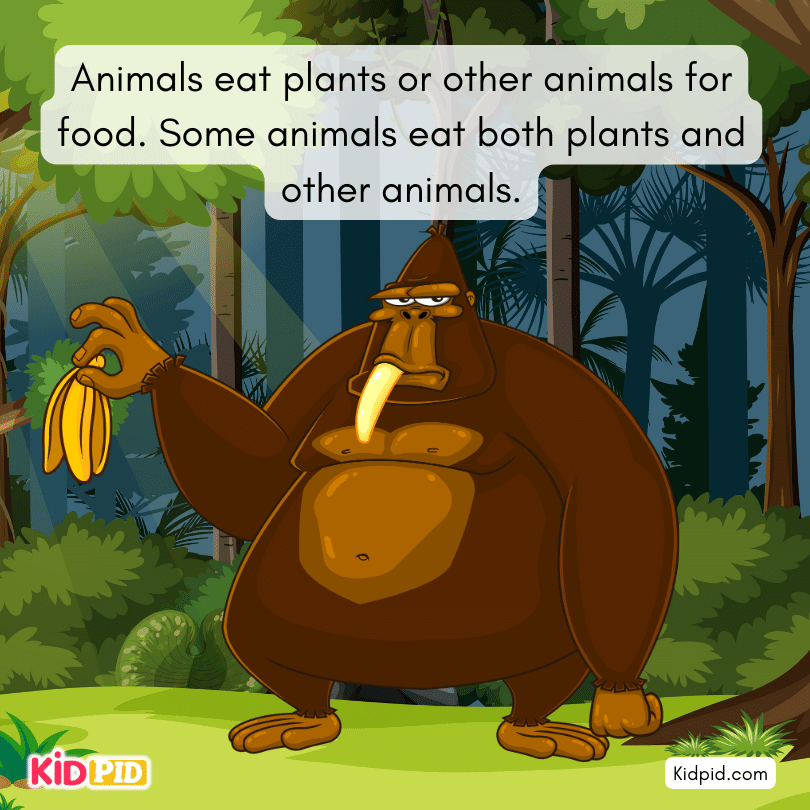
Animals eat plants or other animals for food. Some animals eat both plants and other animals.
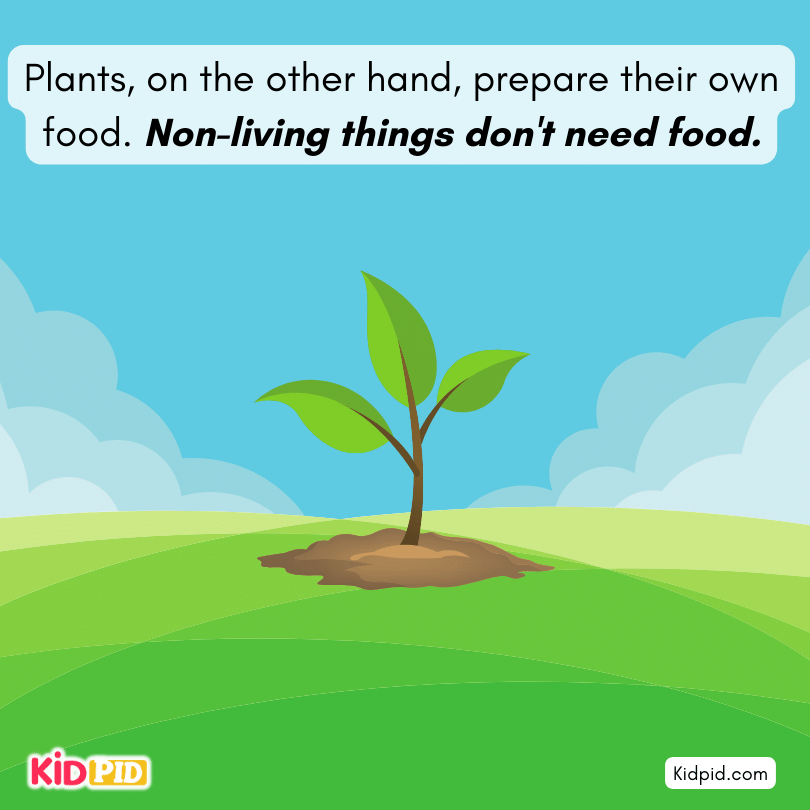
Plants, on the other hand, prepare their food. Non-living things don’t need food.
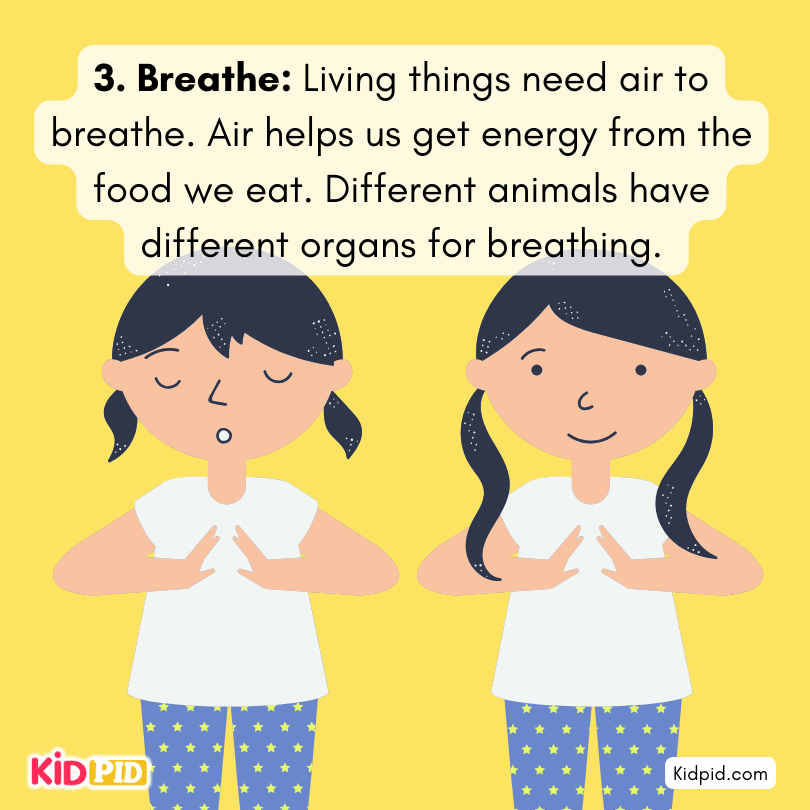
Living things need air to breathe. Air helps us get energy from the food we eat. Different animals have different organs for breathing.
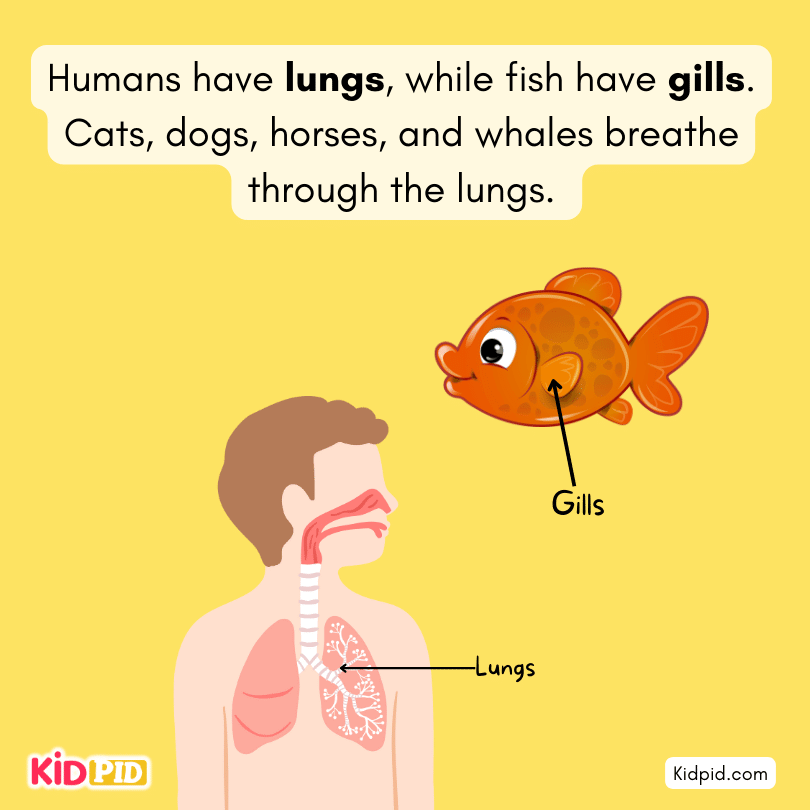
Humans have lungs, while fish have gills. Cats, dogs, horses, and whales breathe through the lungs.
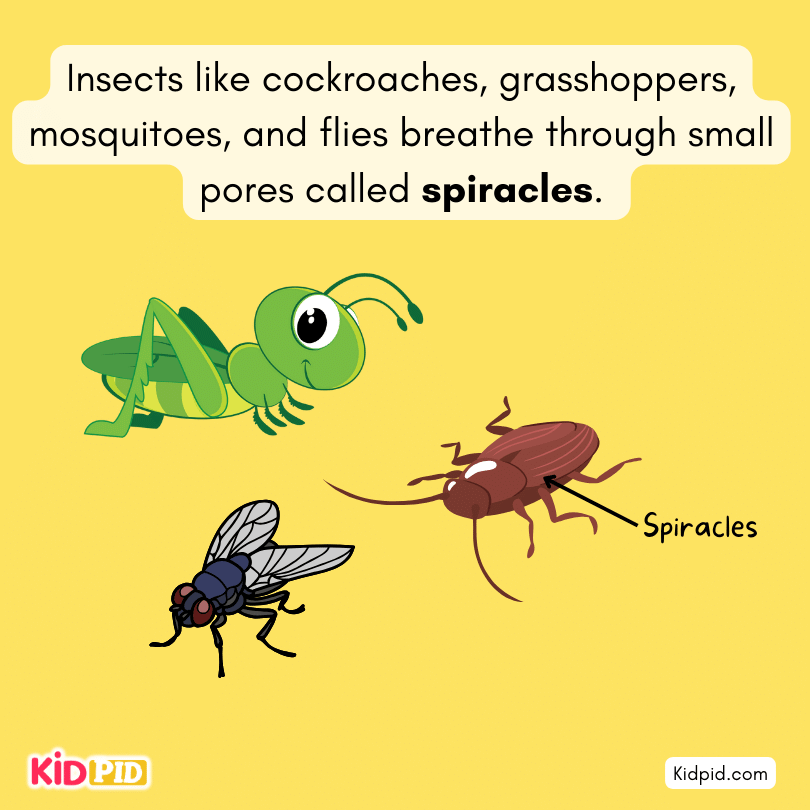
Insects like cockroaches, grasshoppers, mosquitoes, and flies breathe through small pores called spiracles.
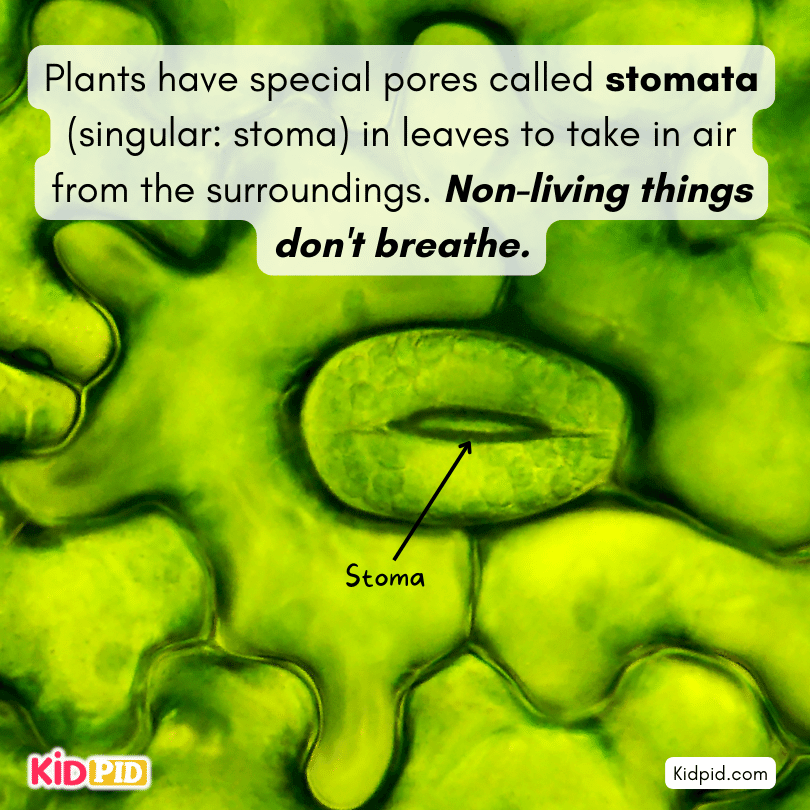
Plants have special pores called stomata (singular: stoma) in leaves to take in air from the surroundings. Non-living things don’t breathe.
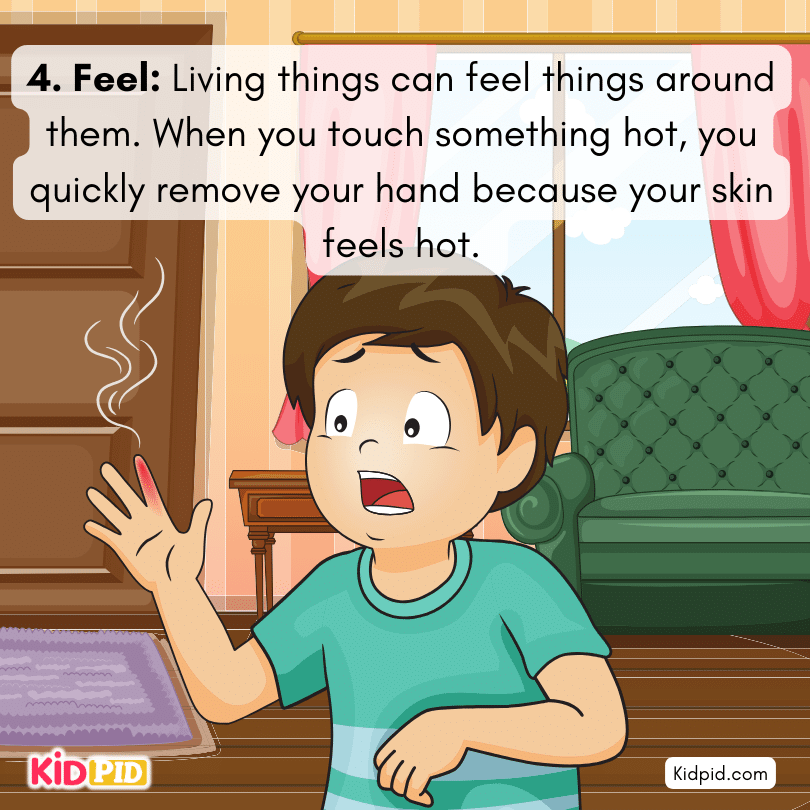
Living things can feel things around them. When you touch something hot, you quickly remove your hand because your skin feels hot.
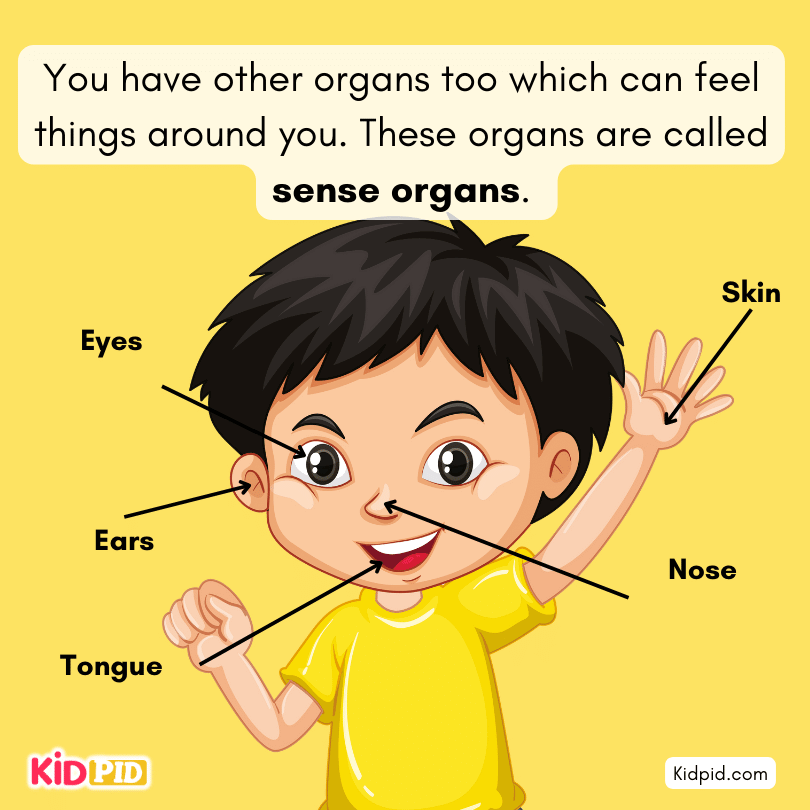
You have other organs too which can feel things around you. These organs are called sense organs.
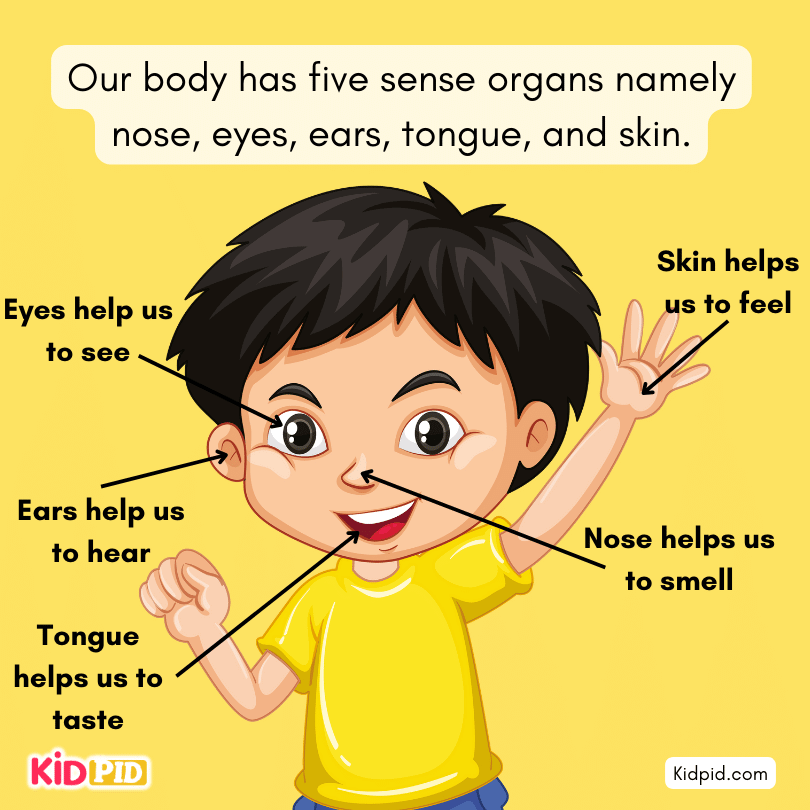
Our body has five sense organs namely nose, eyes, ears, tongue, and skin.
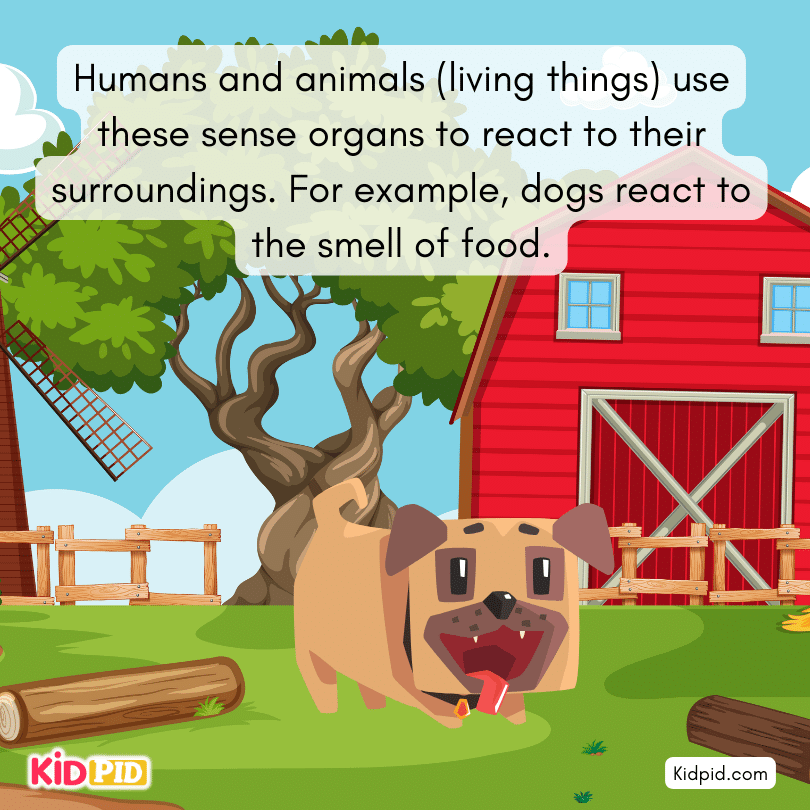
Humans and animals (living things) use these sense organs to react to their surroundings.
-
- For example, dogs react to the smell of food.
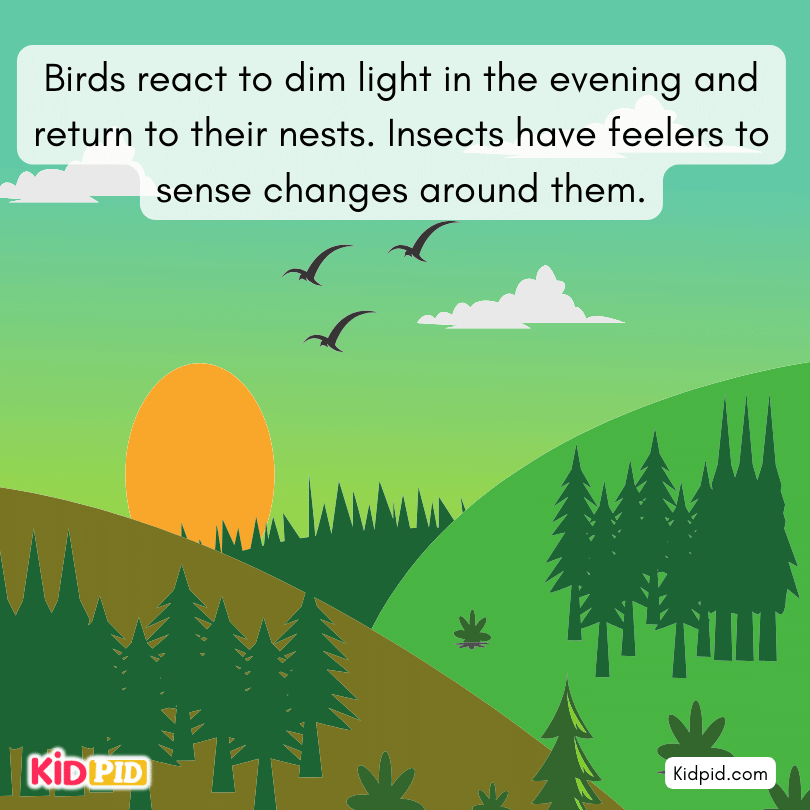
Birds react to dim light in the evening and return to their nests. Insects have feelers to sense changes around them.
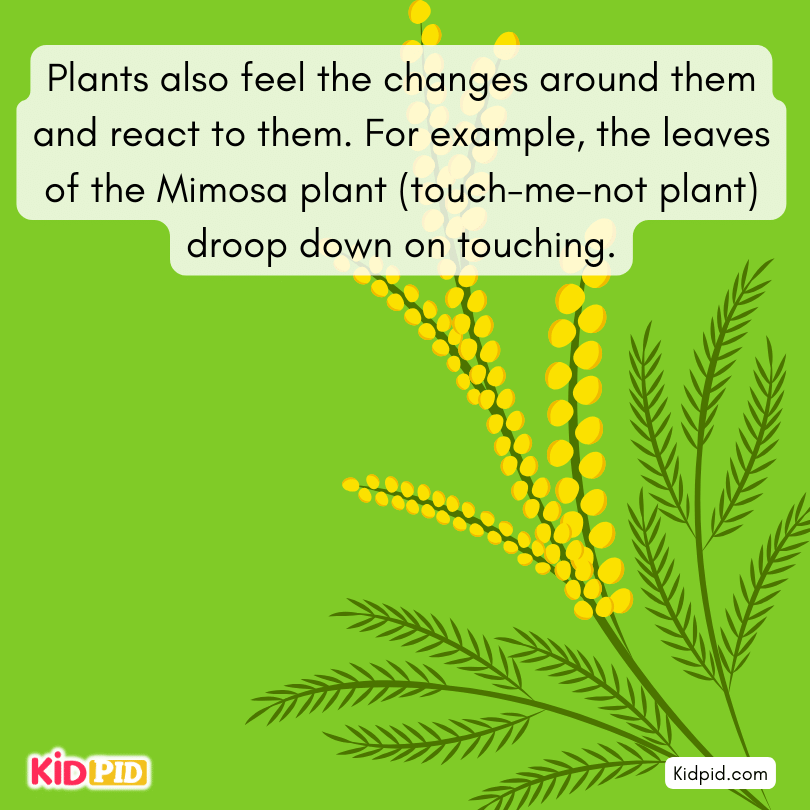
Plants also feel the changes around them and react to them.
-
- For example, the leaves of the Mimosa plant (touch-me-not plant) droop down on touching.
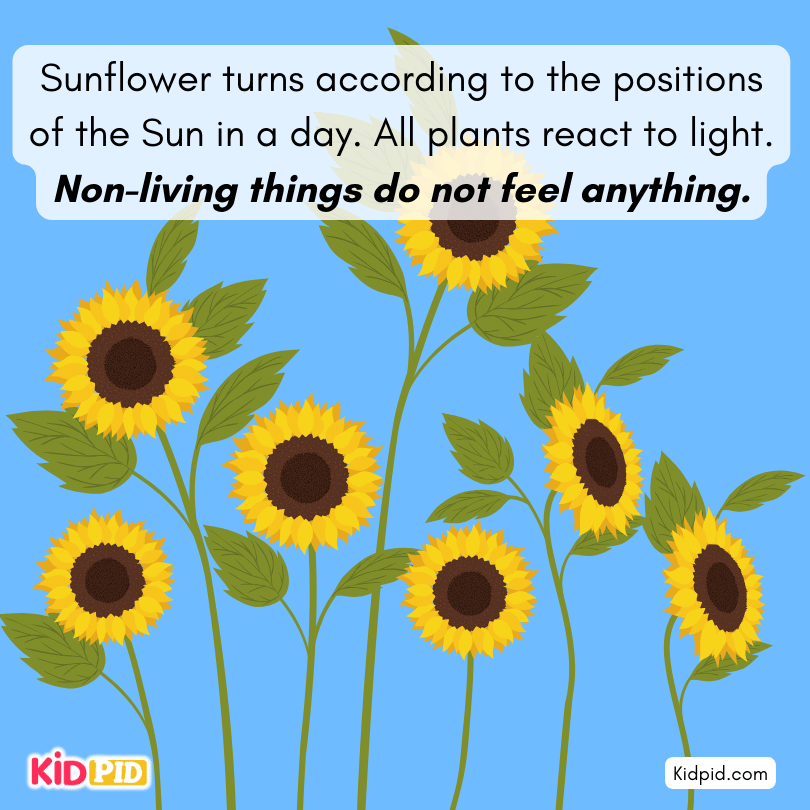
Sunflower turns according to the positions of the Sun in a day. All plants react to light. Non-living things do not feel anything.
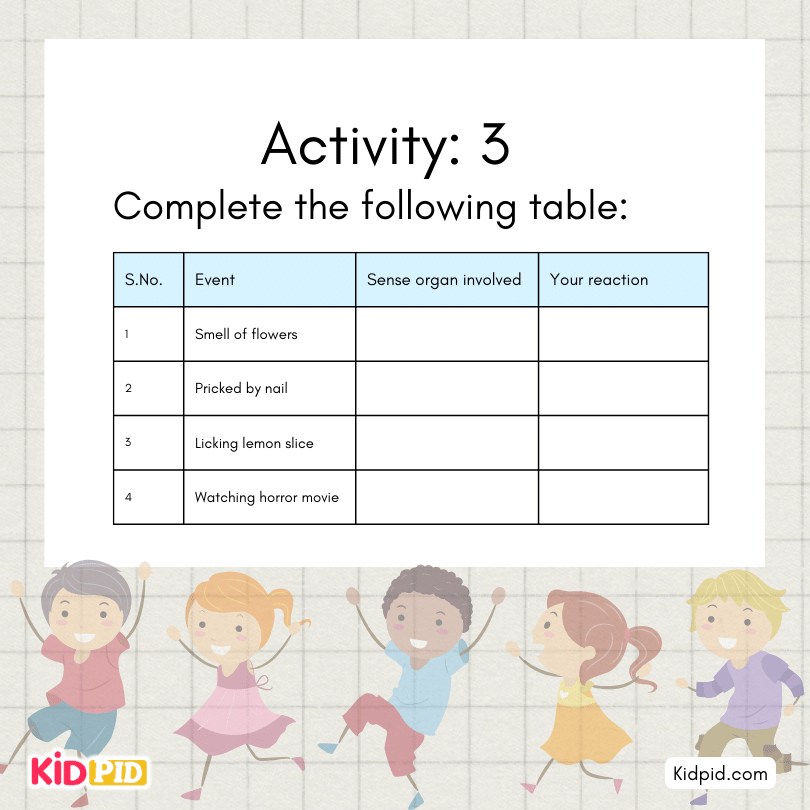
Activity-3Complete the following table:
|
Living things can produce more of their kind. Some animals give birth to young ones, like cats giving birth to kittens or dogs giving birth to puppies.
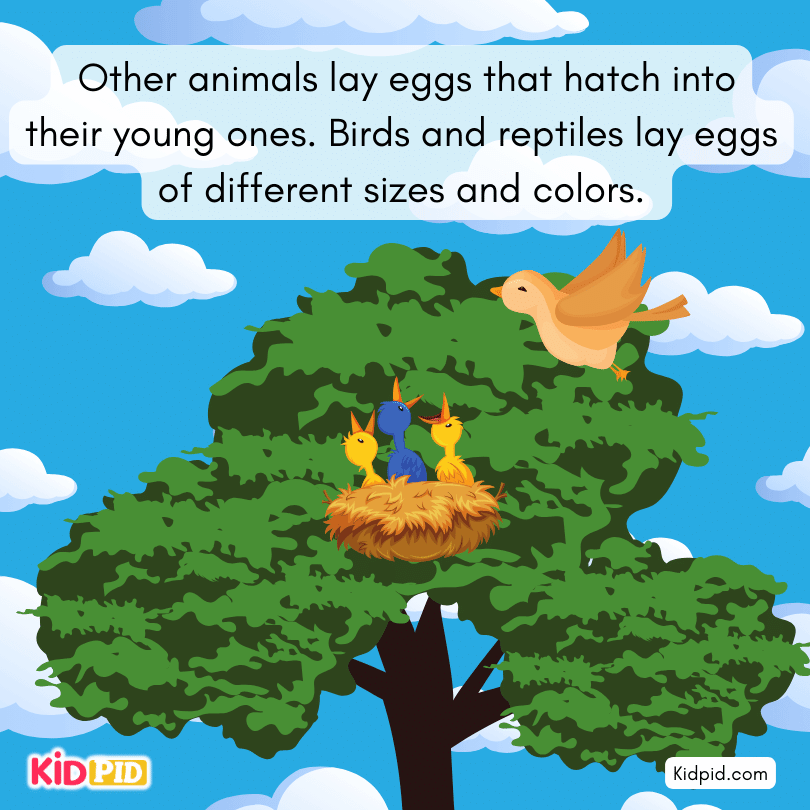
Other animals lay eggs that hatch into their young ones. Birds and reptiles lay eggs of different sizes and colors.
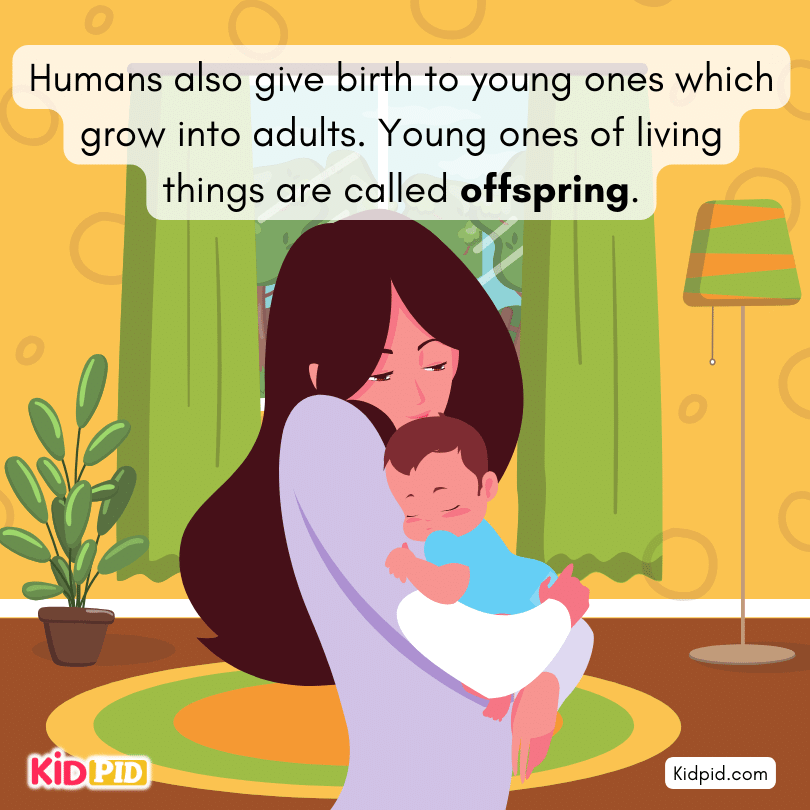
Humans also give birth to young ones which grow into adults. Young ones of living things are called offspring.
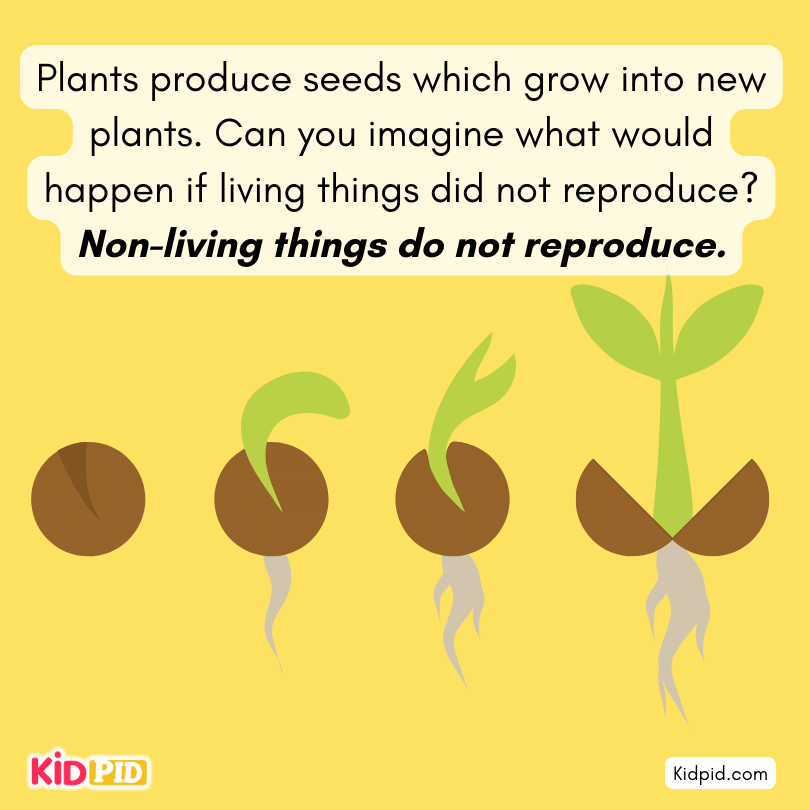
Plants produce seeds which grow into new plants. Can you imagine what would happen if living things did not reproduce? Non-living things do not reproduce.
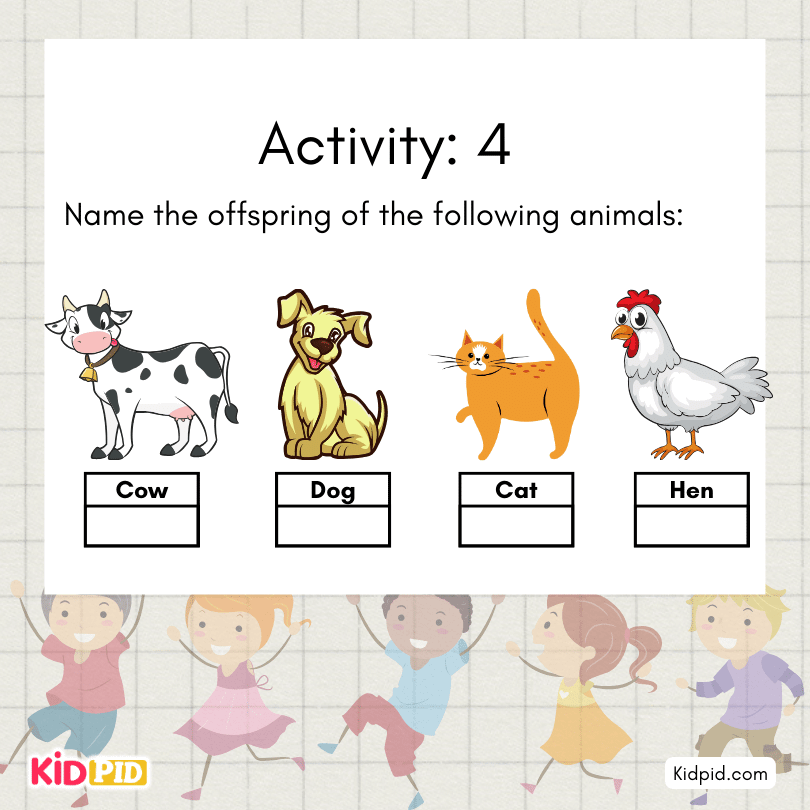
Activity-4Name the offspring of the following animals:
|
You must have seen your photographs when you were one year old. All living things grow and change.
-
- For example – A pup grows into a dog.
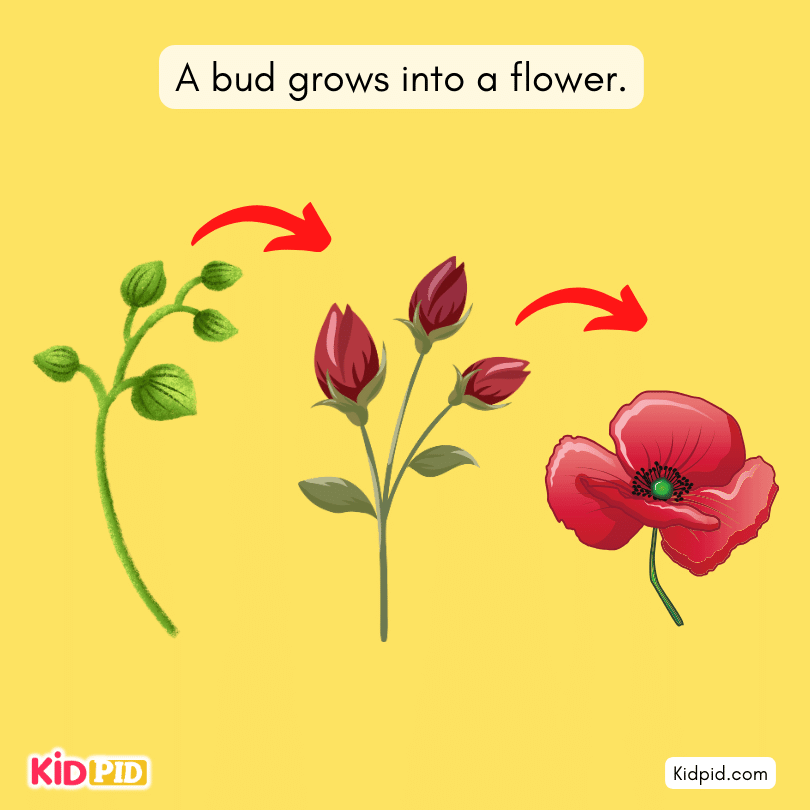
A bud grows into a flower.
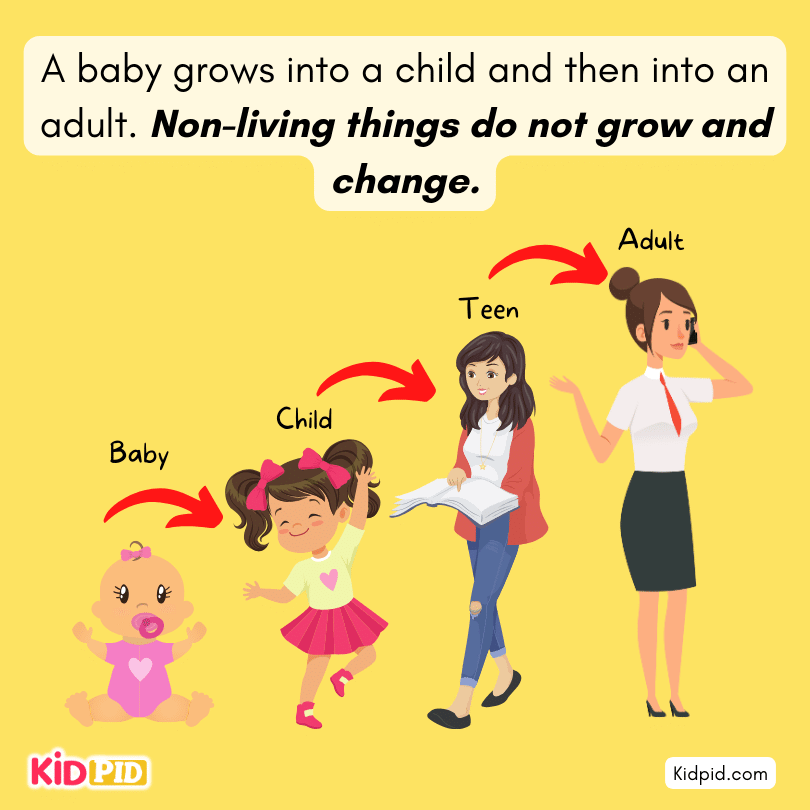
A baby grows into a child and then into an adult. Non-living things do not grow and change.
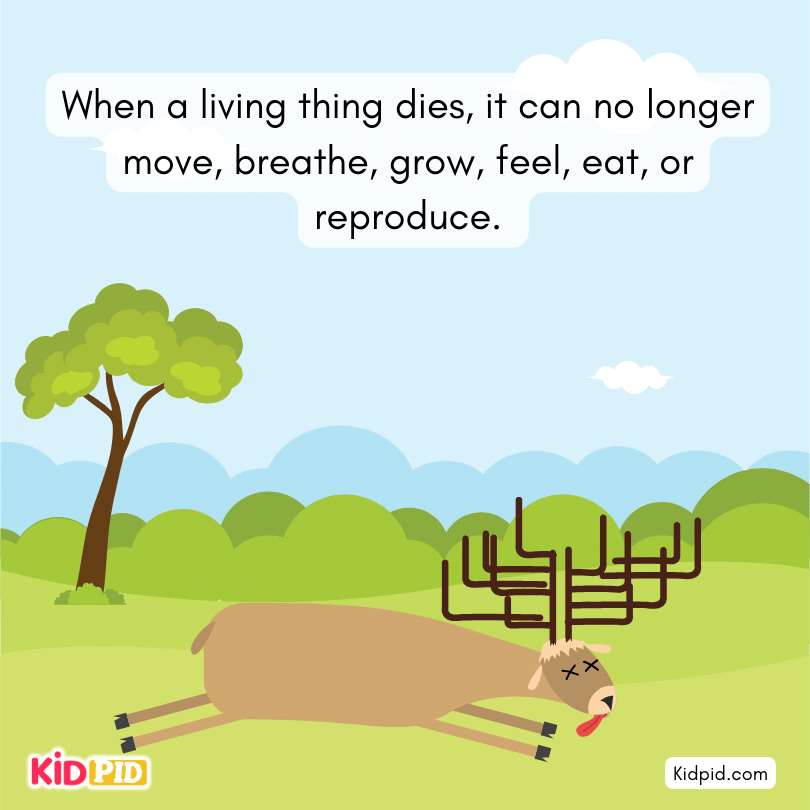
When a living thing dies, it can no longer move, breathe, grow, feel, eat, or reproduce.
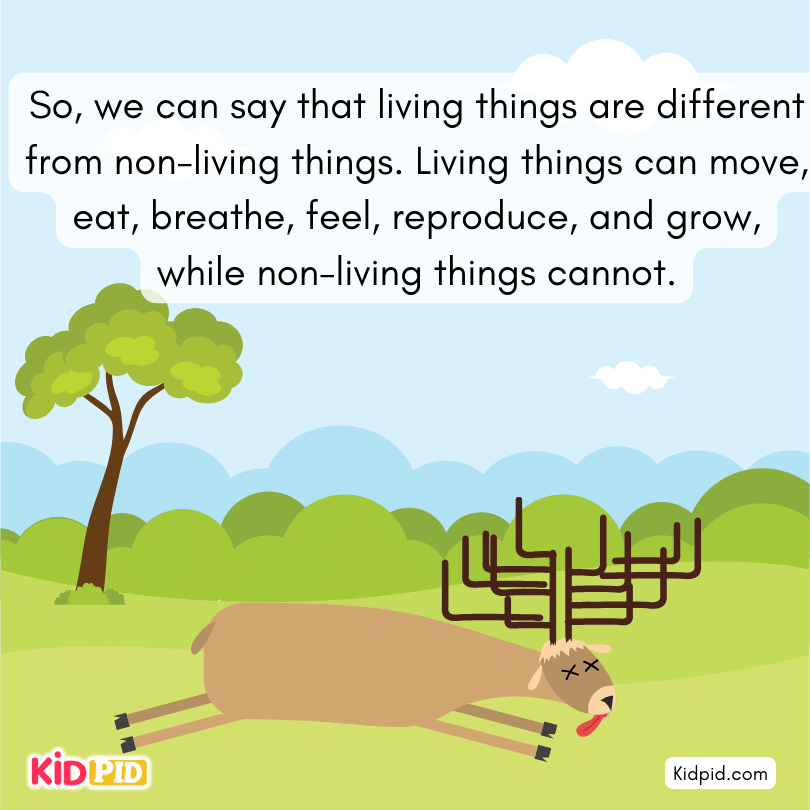
So, we can say that living things are different from non-living things. Living things can move, eat, breathe, feel, reproduce, and grow, while non-living things cannot.
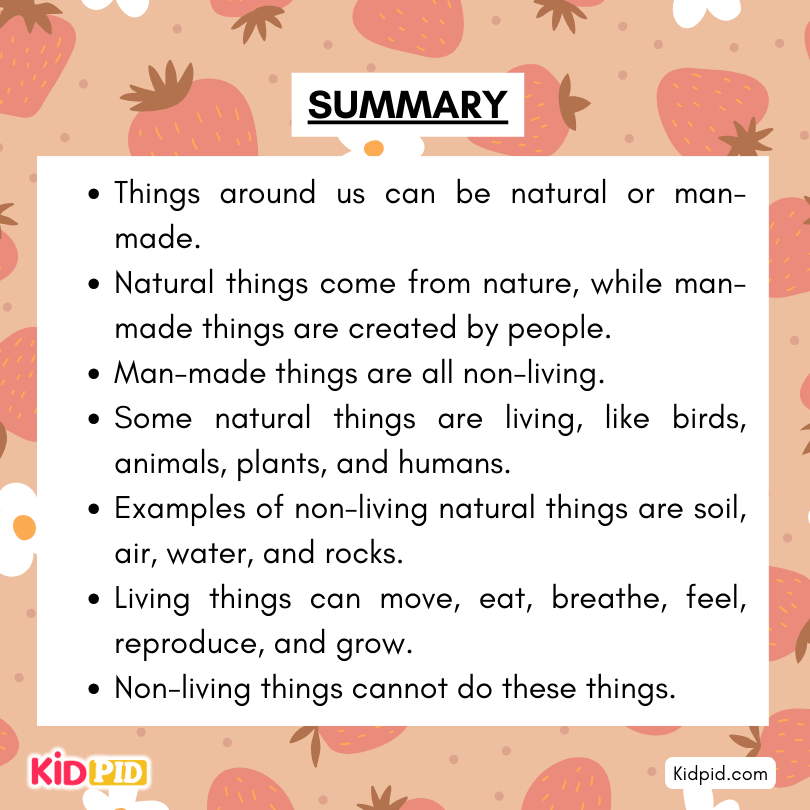
- Things around us can be natural or man-made.
- Natural things come from nature, while man-made things are created by people.
- Man-made things are all non-living.
- Some natural things are living, like birds, animals, plants, and humans.
- Examples of non-living natural things are soil, air, water, and rocks.
- Living things can move, eat, breathe, feel, reproduce, and grow.
- Non-living things cannot do these things.
MCQ’s based on the lesson
1. Which of the following is a living thing?
a) Rock
b) Tree
c) Toy car
d) Chair
2. Which of the following is a non-living thing?
a) Dog
b) Sunflower
c) Cloud
d) Bicycle
3. What do living things need to survive?
a) Food, water, and air
b) Toys and games
c) TV and video games
d) Cars and houses
4. Which of the following is a characteristic of living things?
a) They can talk
b) They can fly
c) They can grow and reproduce
d) They can change colors
5. What is a living thing that can make its food called?
a) Consumer
b) Predator
c) Producer
d) Decomposer
6. Which of the following is a characteristic of non-living things?
a) They can grow and develop
b) They can reproduce
c) They can respond to the environment
d) They do not need food or water
Read More:

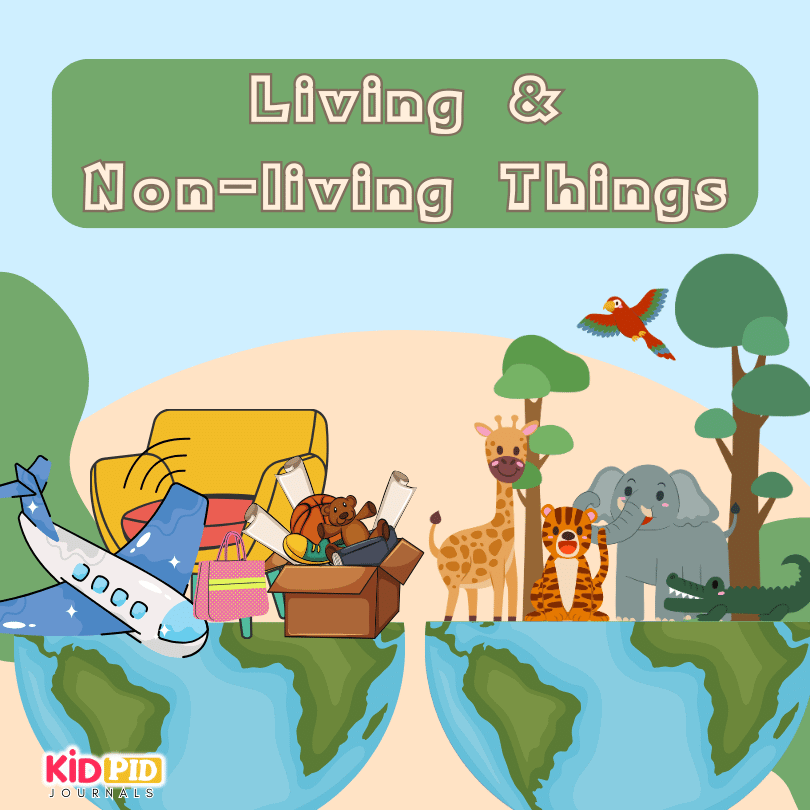
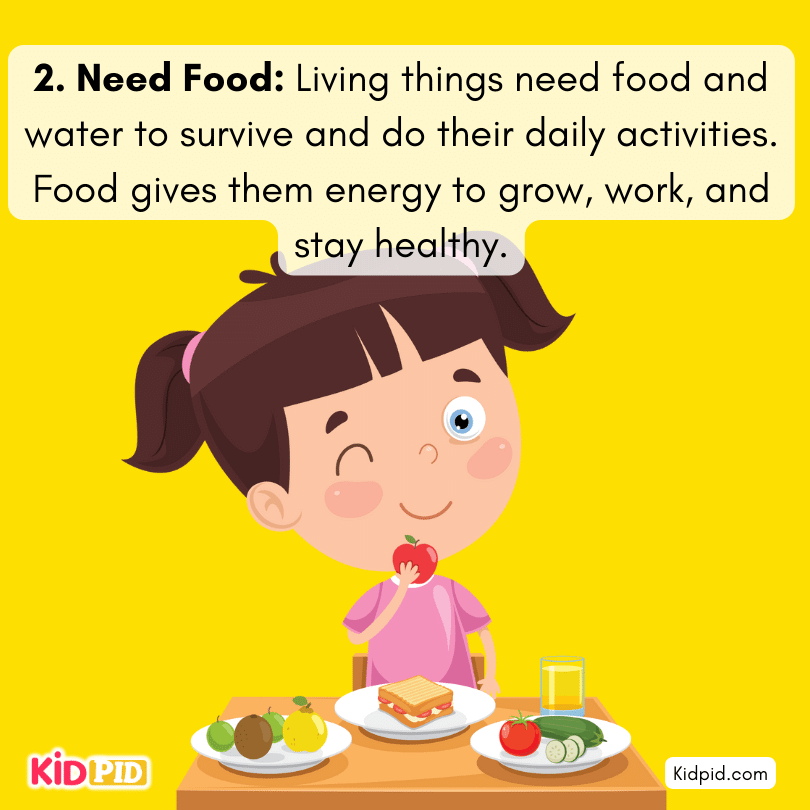
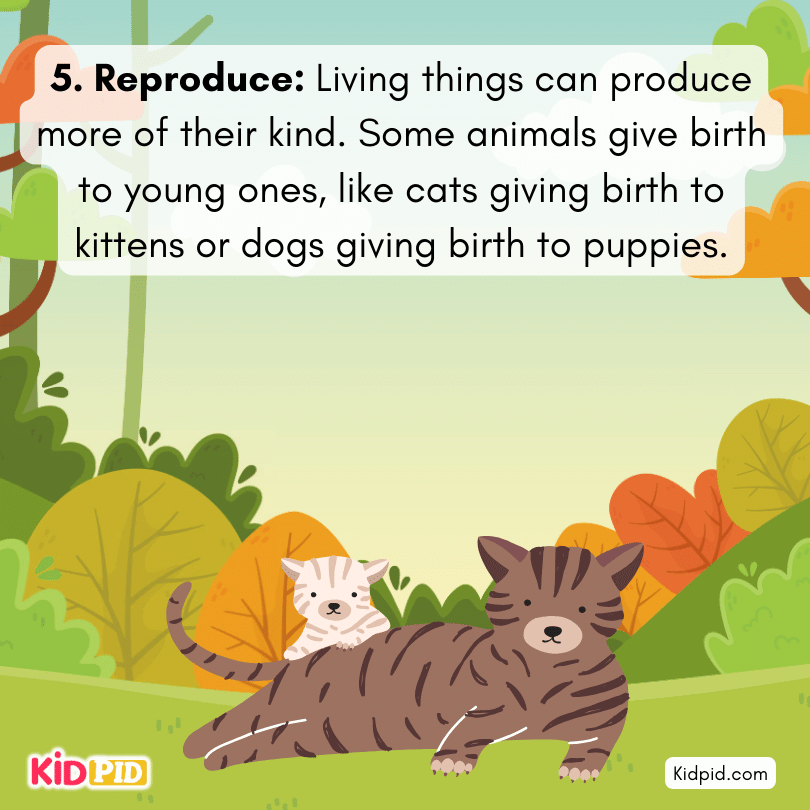
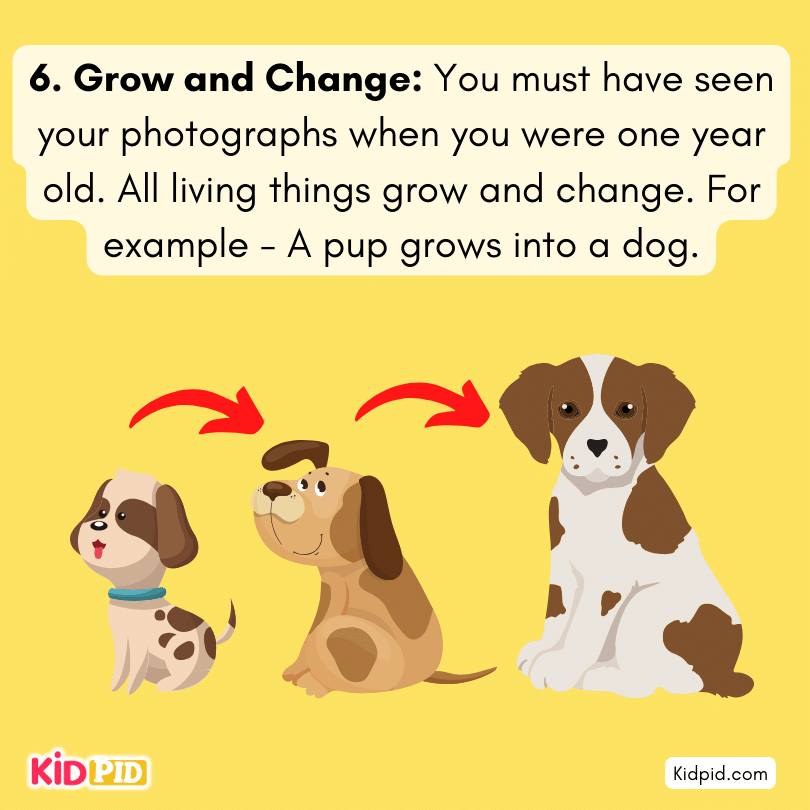


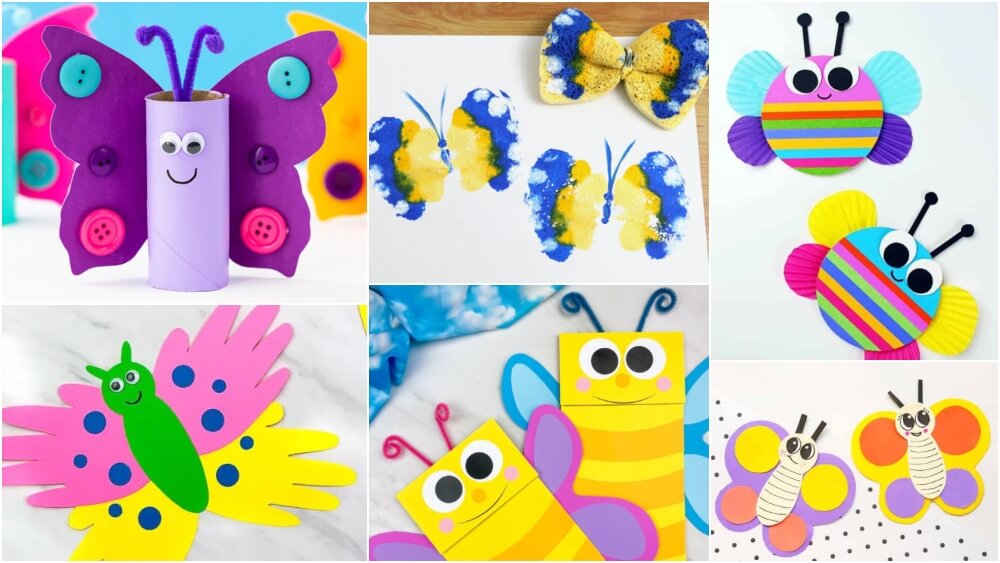

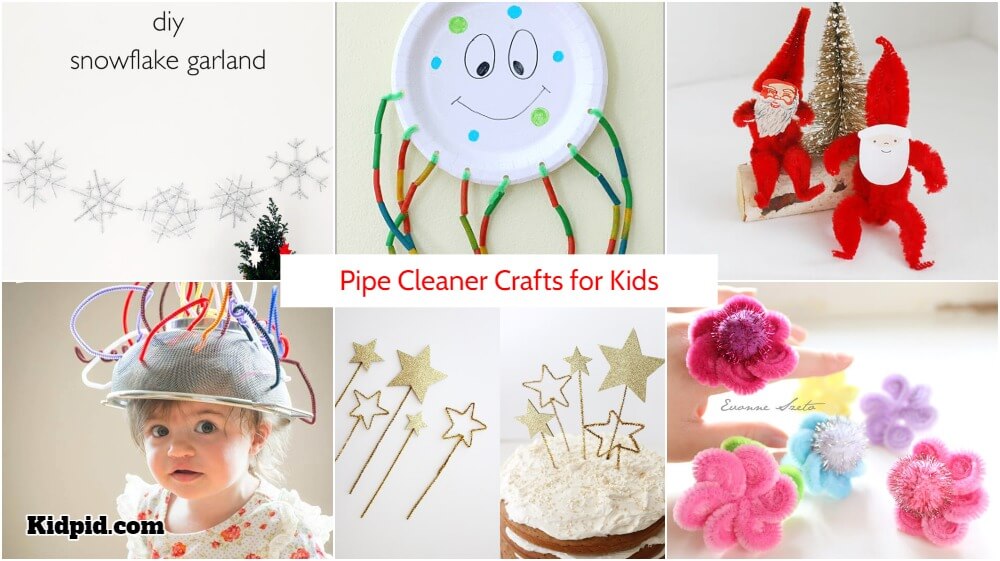
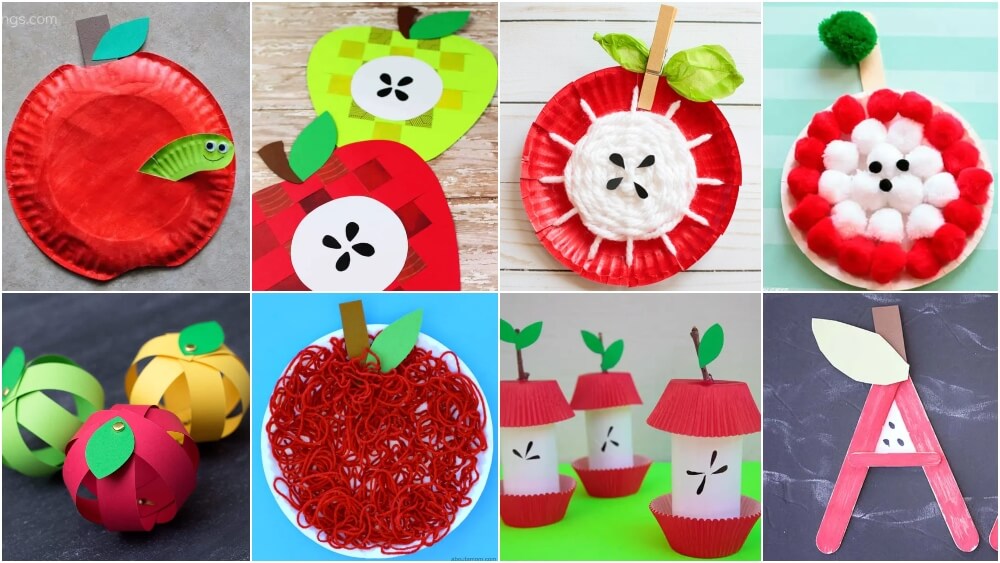
Responses